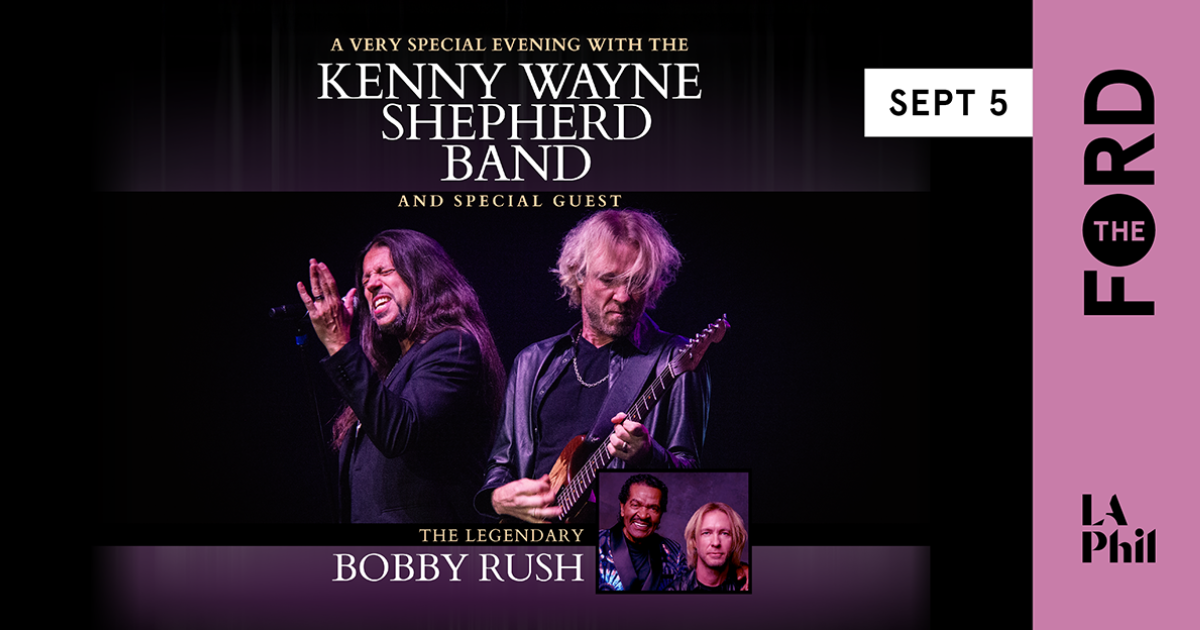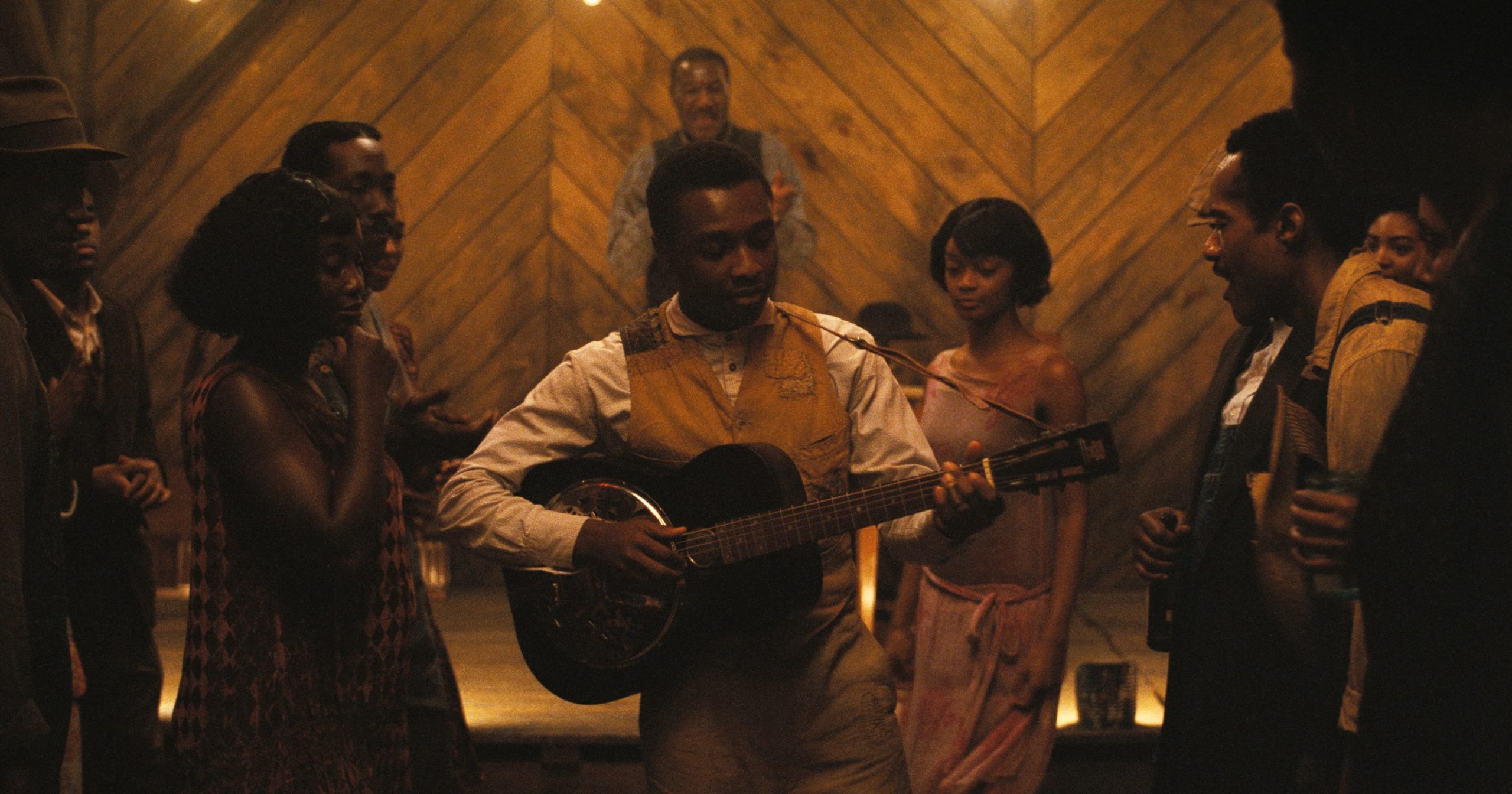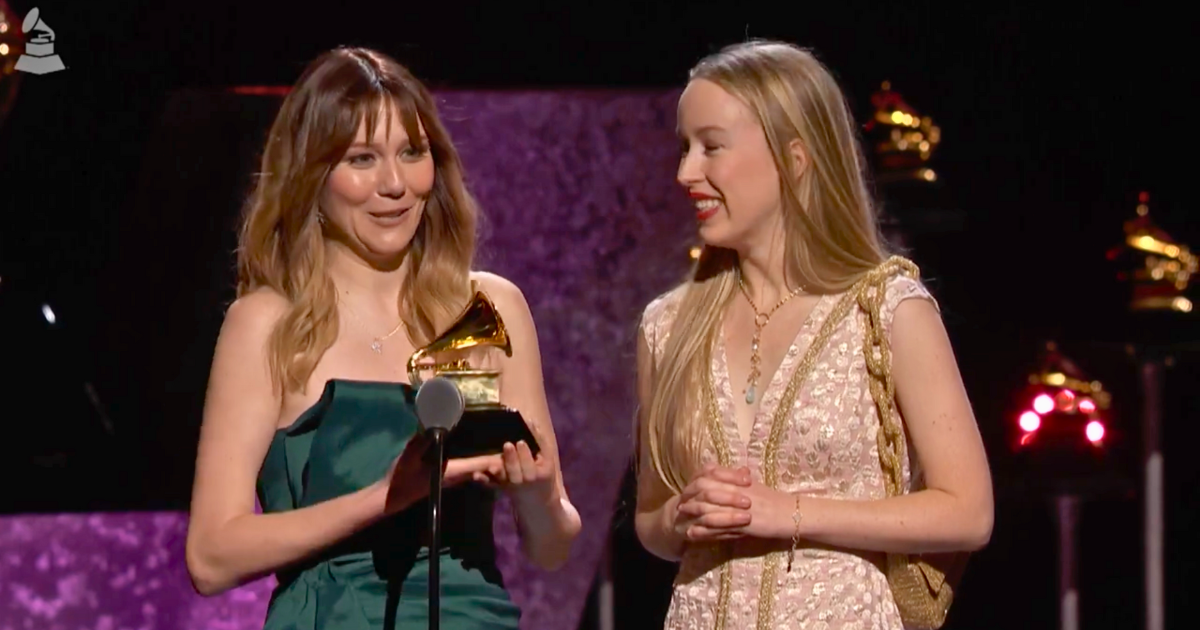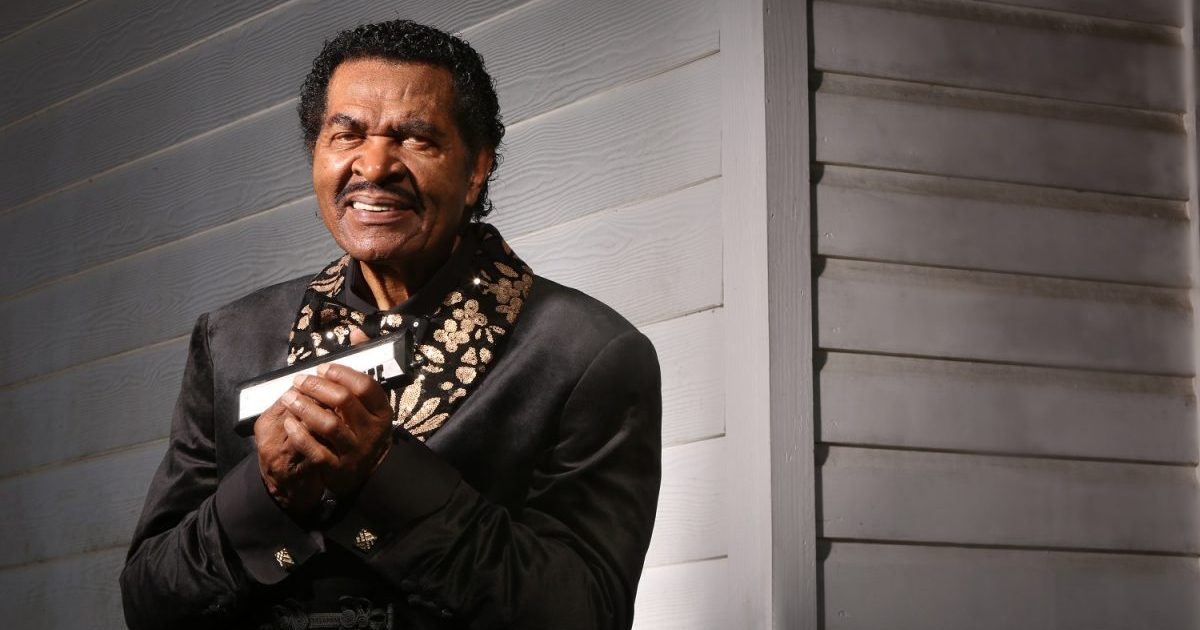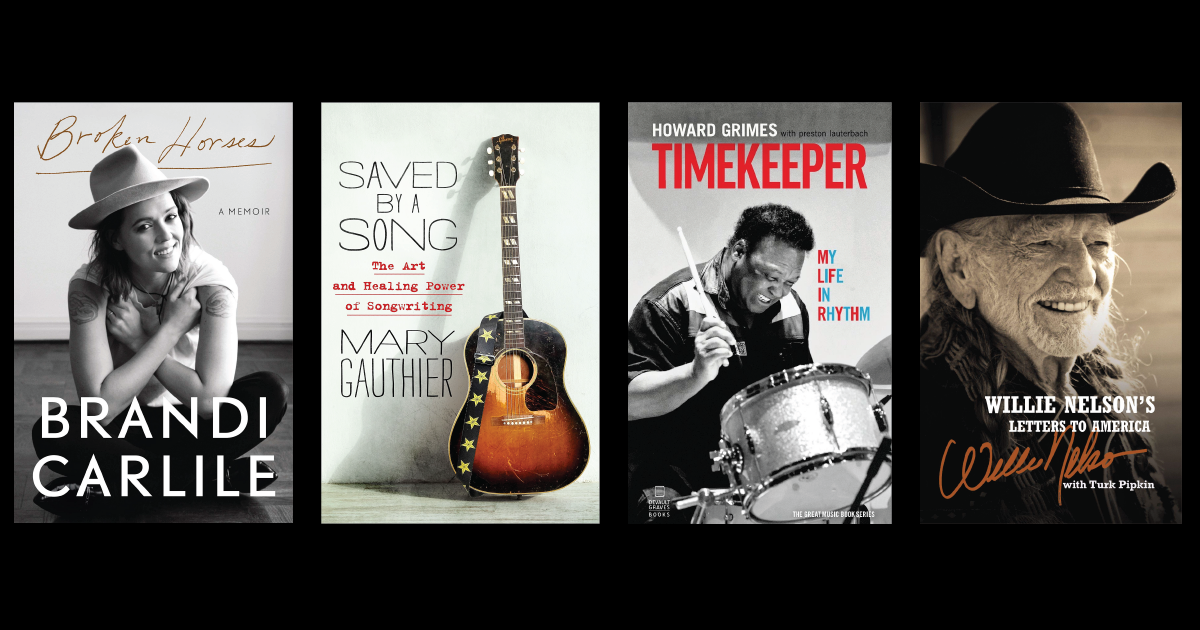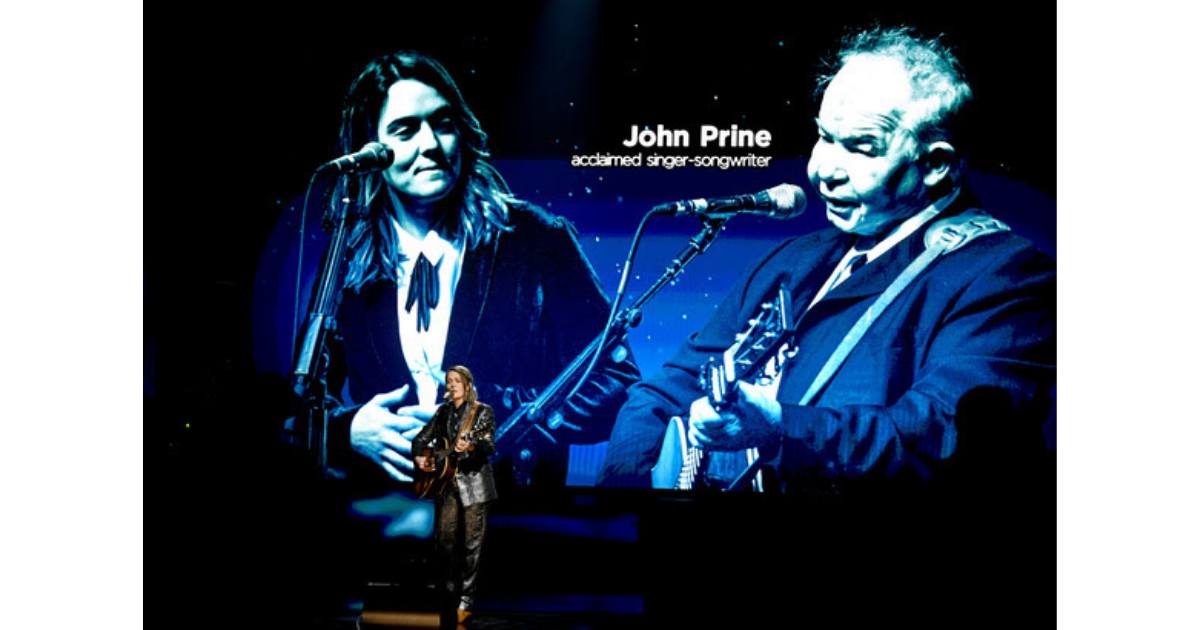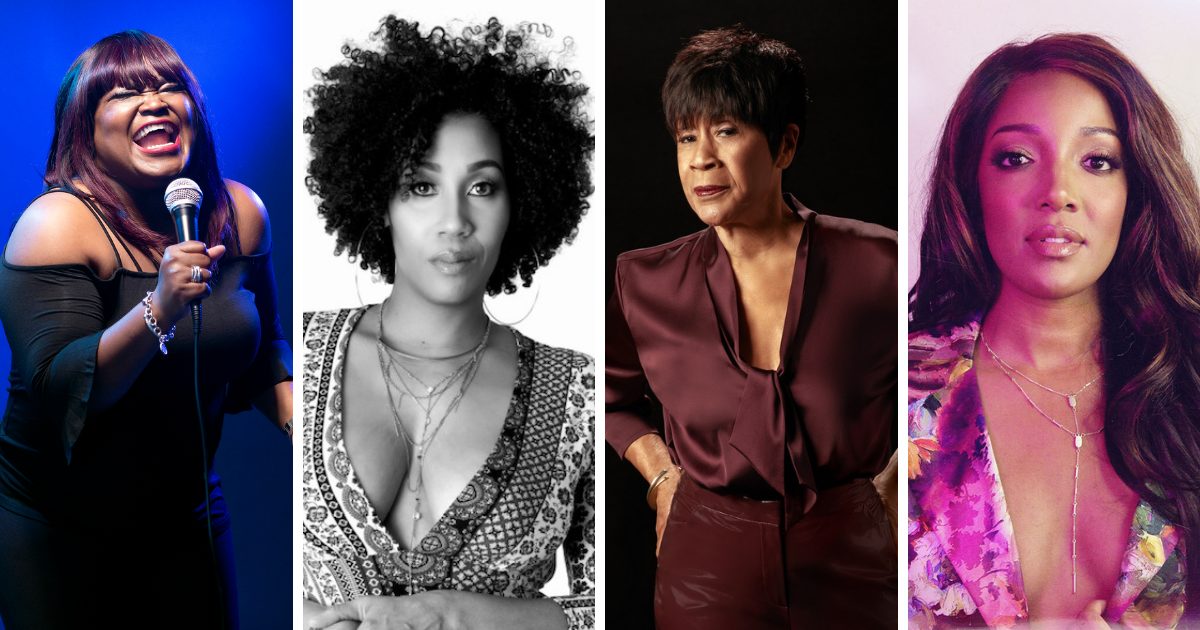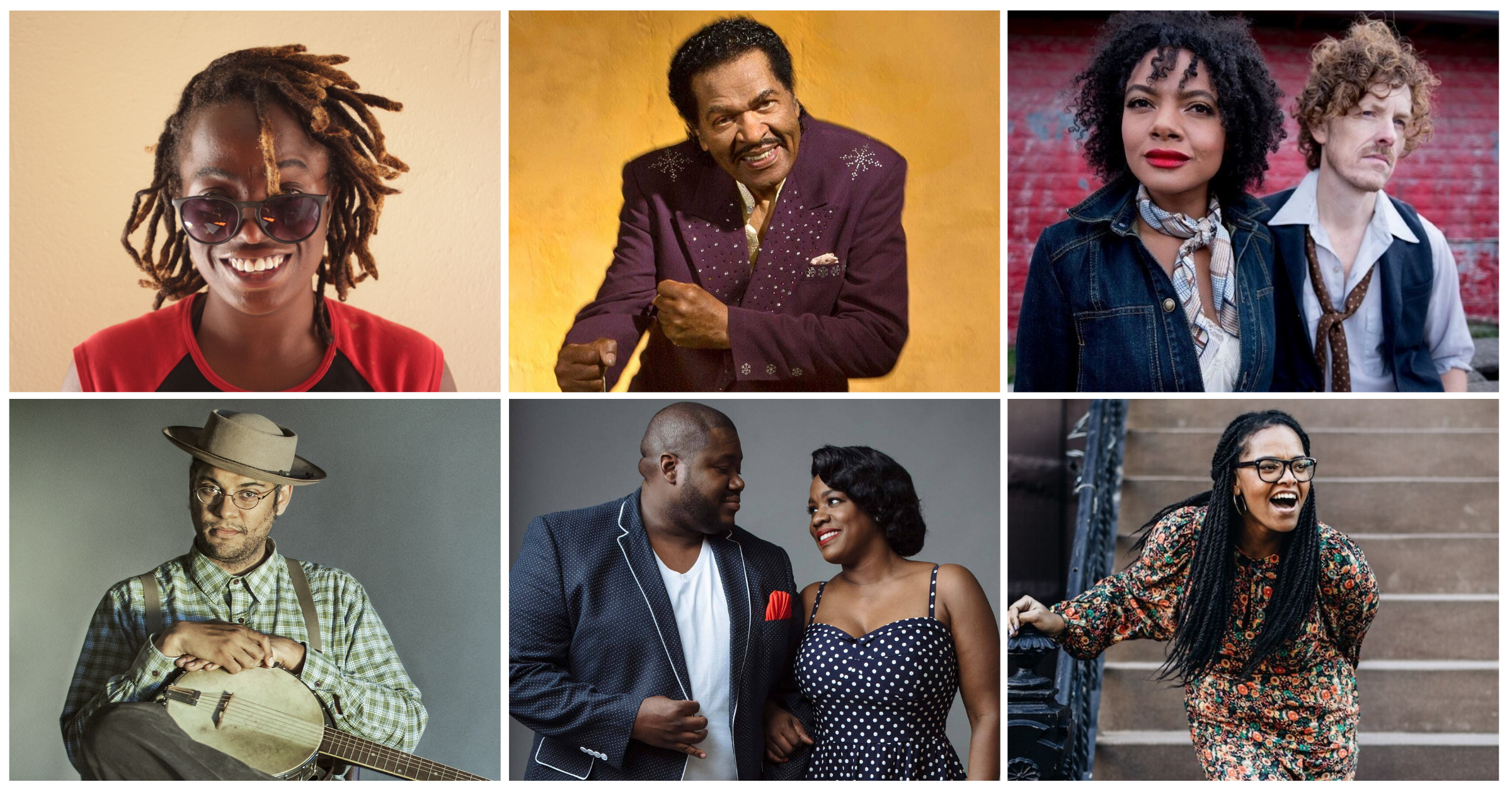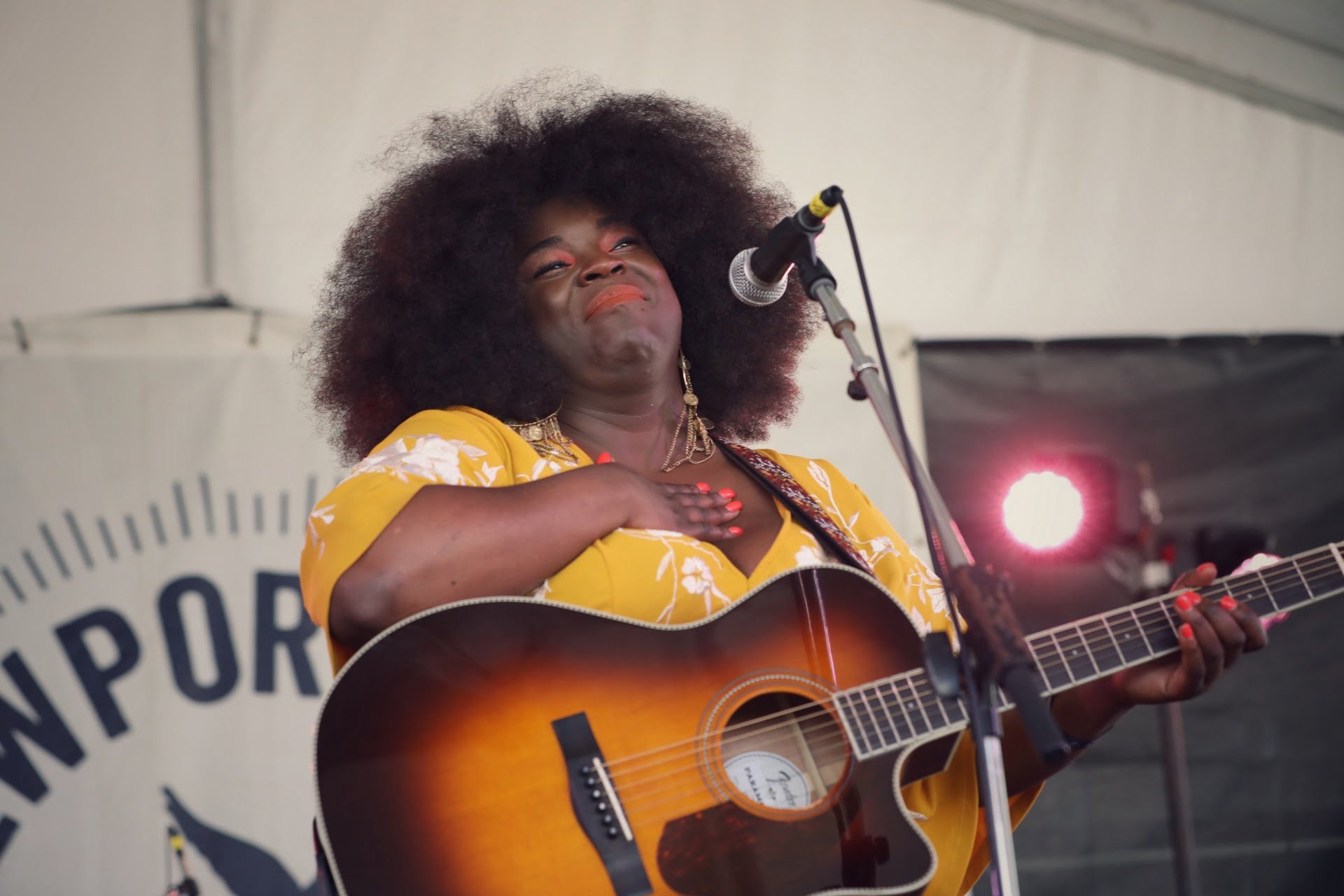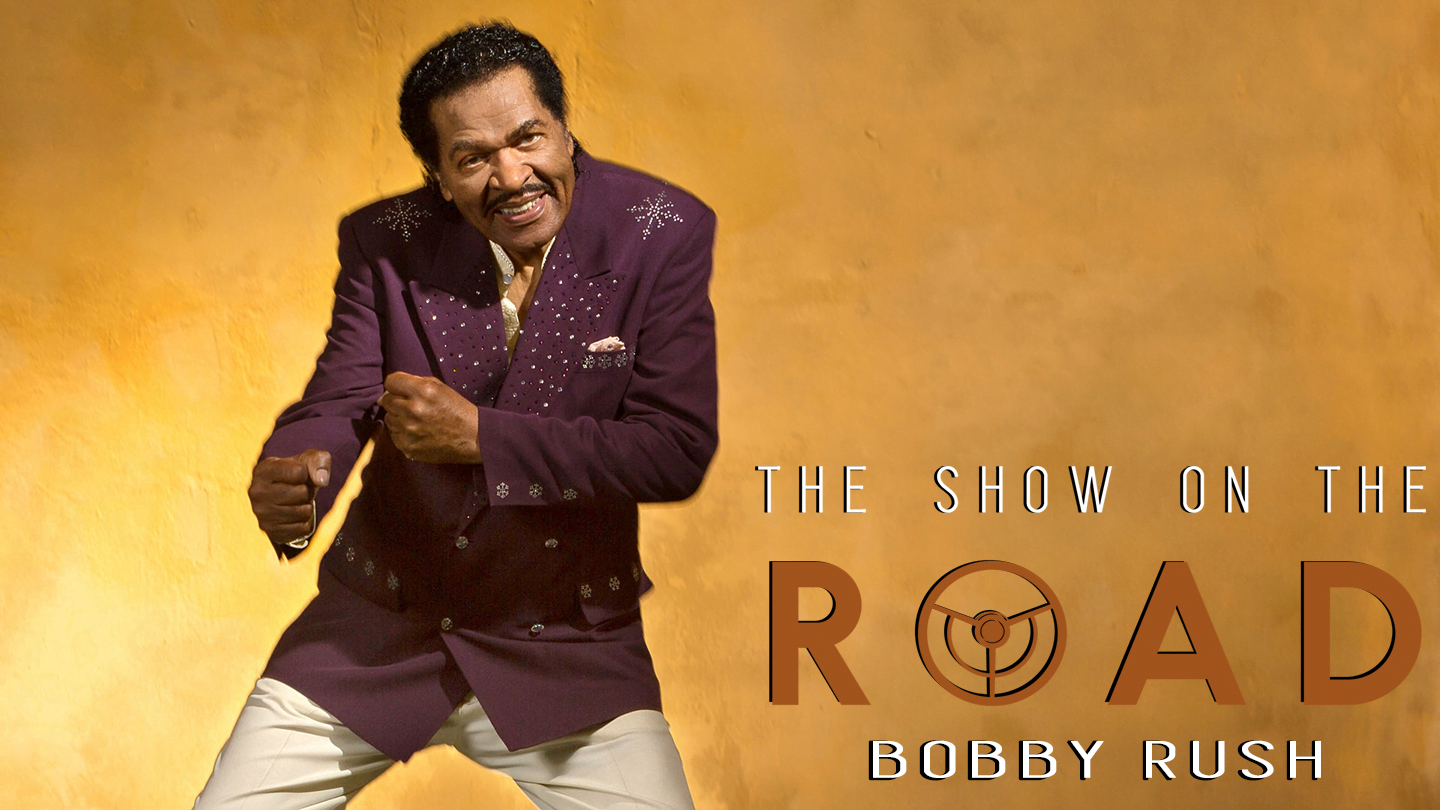Tag: Bobby Rush
The Roots Music of
Ryan Coogler’s Sinners, Explained
(Writer’s Note: If you haven’t seen Sinners yet, be warned – there are significant spoilers below.)
“There are legends of people born with the gift of making music so true it can pierce the veil between life and death, conjuring spirits from the past and the future…”
So begins the film Sinners, the epic Southern gothic horror film from acclaimed director Ryan Coogler (Fruitvale Station, Black Panther). Sinners tells of twins Smoke and Stack Moore (both played by a fantastic Michael B. Jordan), who open a juke joint with the help of their cousin Sammie (Miles Caton) in their small Mississippi hometown in 1932. Driven by a love for blues music and a desire to create a safe gathering place for other Black people, the twins establish Club Juke at a defunct sawmill, unwittingly setting into motion a sinister chain of events.
That opening narration, which points to Sammie and his prodigious musical gifts, accompanies an evocative montage of folk imagery, as the narrator outlines the importance of musical storytellers within tight-knit communities. One such folk figure is the West African griot, a protector of oral tradition who also often served as leaders in their communities. The montage is backed by haunting resonator guitar, a musical motif that will repeat throughout the film.
Coogler tapped the GRAMMY- and Oscar-winning composer Ludwig Göransson to score Sinners, continuing the creative partnership the two began with Coogler’s 2013 film Fruitvale Station (which also stars Michael B. Jordan). Rootsy and atmospheric, the score takes blues influences and ratchets up the tension with strings and percussion to suit the horror themes that unfold midway through the story.
Artists who perform on the Sinners soundtrack include Brittany Howard, Cedric Burnside, Rhiannon Giddens, Alice Smith and Rod Wave. Players on the Sinners score include Buddy Guy, Bobby Rush, Justin Robinson, and Leyla McCalla. Roots musician and actor Lola Kirke appears in the film as Joan, a member of the KKK who becomes a vampire.
Sinners is set in Clarksdale, Mississippi, a Delta city famous for its rich blues music history and for its role in the Great Migration, which, on the whole, found over six million Black Americans leaving the Southeast for large cities in other regions – including Chicago, Detroit, New York City and Cleveland – in order to flee racial segregation, Jim Crow laws and racial violence like lynching.
Dense with musical references, Sinners incorporates blues history into the naming of its characters, too. Stack’s name likely references the classic American folk song “Stagger Lee,” also known as “Stagolee” or “Stack O’ Lee Blues.” That tune tells the story of a real-life man and professional procurer, Lee Shelton, who lived in St. Louis, Missouri, in the late 1800s. Friends called Shelton “Stag” because of his perpetual bachelorhood, and, at times, “Stag” became “Stack.” On Christmas Day, 1895, Stack shot and killed a man named Billy Lyons after Lyons stole Stack’s Stetson cowboy hat, and the rest would soon become musical history.
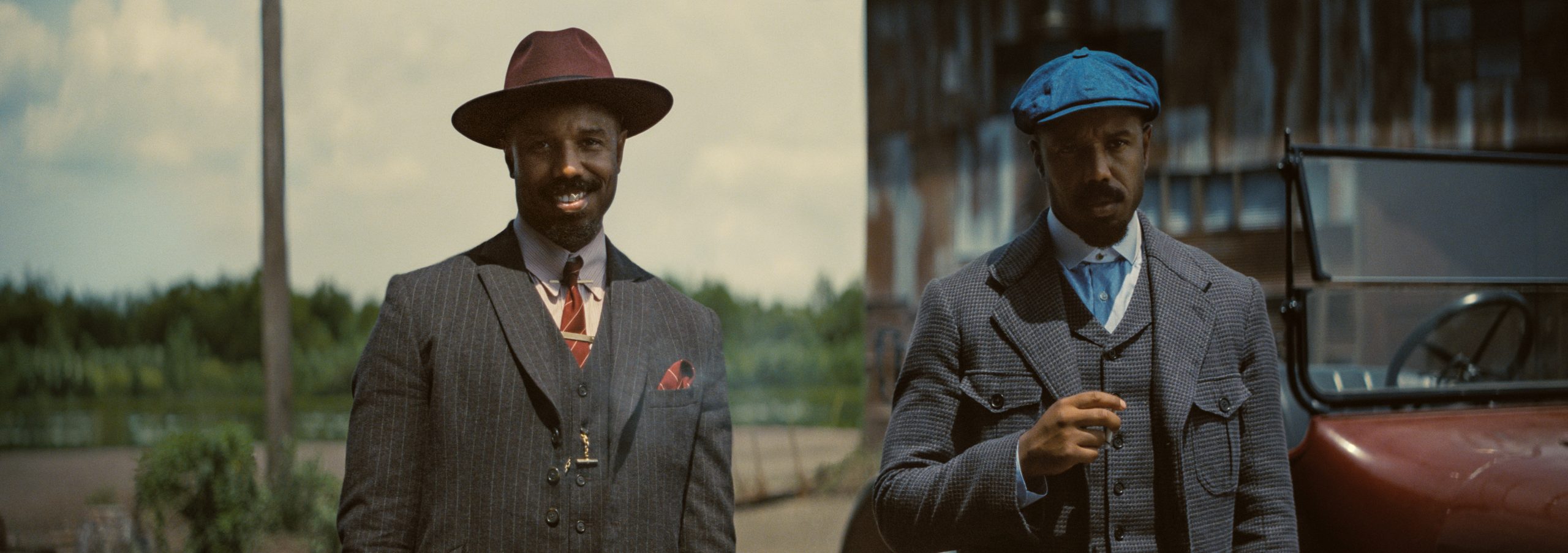
The song’s original writer is unknown, and it has been recorded and performed by a bevy of artists in the intervening decades. One of the most popular recordings is performed by Mississippi John Hurt, a pioneering blues artist. In 1957, Louisiana-born R&B singer Lloyd Price rewrote the song as an upbeat rock number, scoring a number one Billboard pop hit. When Price performed the song on American Bandstand, host Dick Clark had him tone down the “violent” lyrics by giving the song a happy ending.
While Stack’s name is loaded with meaning, the name Smoke is more ambiguous, though as a pair the twins’ names could point to “Smokestack Lightning,” a 1956 song by another Mississippi blues artist, Howlin’ Wolf.
The plot kicks off in earnest when Stack and Smoke return to Clarksdale from Chicago, where they hoped to escape the Jim Crow racism of their home state. Disillusioned by the racism they still encountered once there, the brothers decide to move home to establish Club Juke, recruiting their cousin Sammie to be part of the house band. Sammie is rarely seen without his guitar, a 1932 Dobro Cyclops resonator that Göransson used to record much of the film’s score.
Stack claims that the guitar he and Smoke give to Sammie once belonged to Charley Patton, the Mississippi-born singer and guitarist widely considered to be the “father of the Delta Blues.” (At the movie’s end, Smoke reveals the truth to Sammie: that the guitar actually belonged to his and Stack’s father all along.) Showing Stack his chops, Sammie performs “Travelin’,” a song original to the film.
The emotional and artistic high point of Sinners is a surreal, mid-party musical number that connects the blues to Black music traditions from past and future eras, including hip-hop and rock and roll. The scene begins at Club Juke, with Sammie performing the original song “I Lied to You.” The character Delta Slim soon delivers a short monologue, telling Sammie, “Blues wasn’t forced on us like that religion. Nah, son, we brought this with us from home. It’s magic, what we do. It’s sacred, and big.”
When the opening narration replays after Slim’s speech, things get psychedelic. An electric guitarist dressed in ‘70s rock and roll regalia appears, shredding licks while Club Juke dances around him. A DJ booth appears, with a man in ‘80s hip-hop-inspired clothing behind the boards. B-boys dance among club-goers, and a West African griot appears carrying a drum. Time dissolves as boundaries between musical traditions blur, capturing the essence of 20th-century Black music in one stunning scene.
Trouble starts when a trio of vampiric folk musicians (yes, you read that right) tries to enter Club Juke, hoping to perform. That image of a literal blood-sucking monster in no small part resembles the white colonization of Black music, particularly blues music, adding gravitas to the unexpected plot development. The trio tries to woo their way in with a folksy version of the traditional blues song “Pick Poor Robin Clean,” made popular by Virgninia-born blues artist Luke Jordan in 1927 and the artists Geeshie Wiley and Elvie Thomas – from Louisiana and Texas, respectively – in 1931.
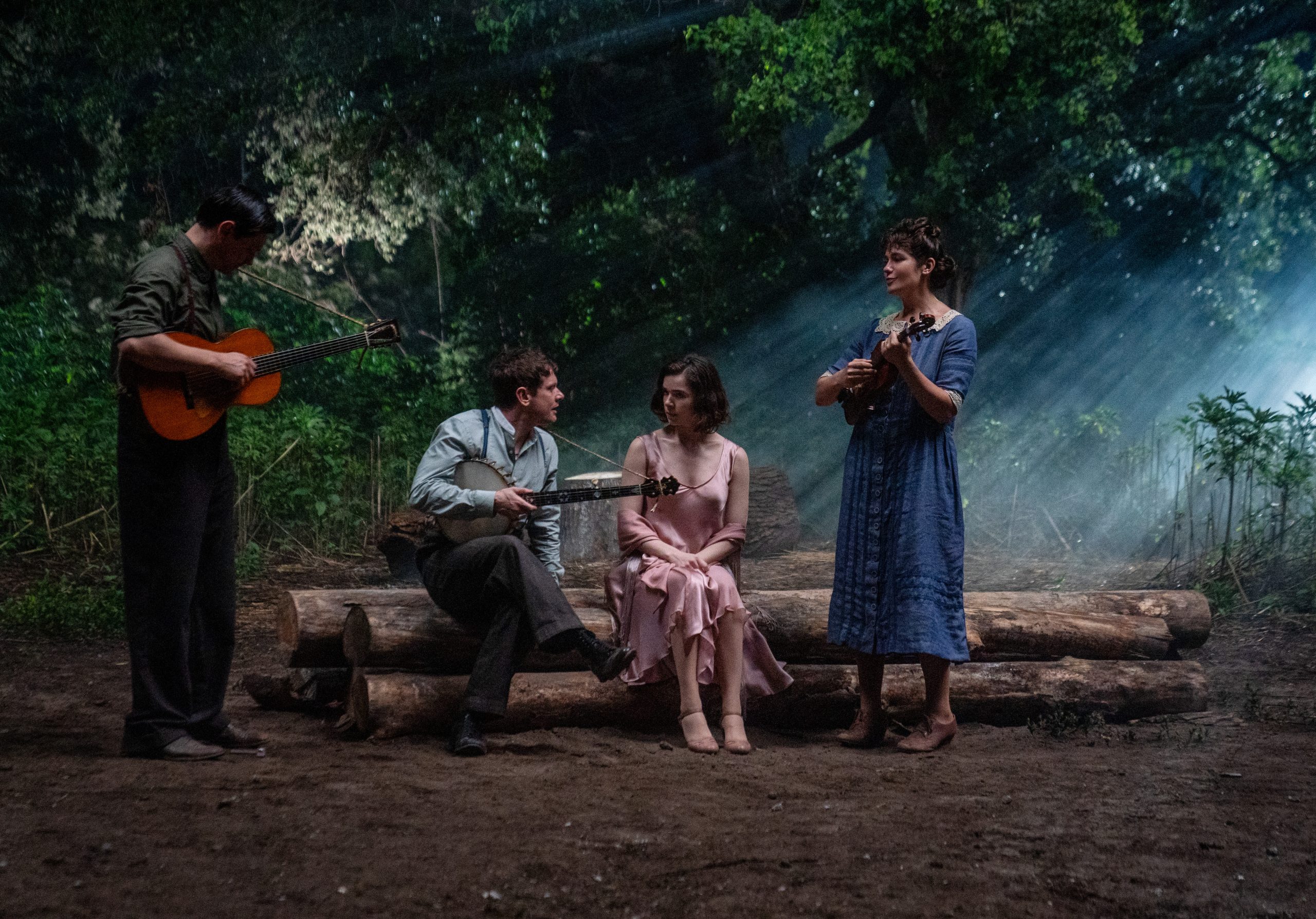
After being denied entry to Club Juke, the trio retreats, performing a hypnotic rendition of the Scottish/Irish folk song “Wild Mountain Thyme” outside the club grounds. The song was especially popular during the American folk music revival and has been recorded by Bonnie Dobson, Judy Collins and Joan Baez, among many other artists.
As the vampire plot unfolds, the musical story takes a bit of a backseat, though a major fight scene between the remaining Club Juke revelers and the ever-growing contingent of vampires does include another major musical number. Led by Remmick, the group performs a chilling, spirited version of the hop jig “Rocky Road to Dublin,” an Irish folk music standard with roots dating back to the mid-19th century.
The next big musical moment comes after the film’s end when, taking a cue from his MCU days, Coogler includes a post-credits scene. Set in Chicago in 1992, the scene features two familiar faces: blues legend Buddy Guy, who plays elderly Sammie, and contemporary blues star Christone “Kingfish” Ingram, a member of the elder Sammie’s band.
Guy, who also performs a version of “Travelin’” on the Sinners soundtrack, was born in 1936 to Louisiana sharecroppers and moved to Chicago to pursue music when he was 21. Shortly after relocating, Guy would meet Chicago blues legend – and Mississippi native – Muddy Waters, who would become his friend and mentor. It’s a full circle moment to close out the film, and one that reinforces the importance of lineage to the blues music tradition.
Unsurprisingly, Sinners is a movie that rewards rewatches. Coogler and his collaborators built a musical world rich with detail and allusion, and did so with what was clearly an enormous amount of love and passion. If you’re a music fan, Sinners is well worth your time – just be careful if you hear a late-night knock at your door.
Sinners is now available to stream on HBO Max and is available to rent VOD. The film is also still showing in a limited number of theaters in select markets.
All images courtesy of Warner Bros. Pictures. Lead Image: Miles Caton as Sammie Moore in Warner Bros. Pictures’ Sinners.
See All of the Roots Music Winners from the 2024 GRAMMY Awards
On Sunday night, the music industry gathered in Los Angeles at the Crypto.com Arena for the 66th Grammy Awards. While Miley Cyrus and Taylor Swift took home the evening’s biggest honors, the primetime broadcast and pre-awards telecast saw many roots musicians honored for their musical achievements.
This year’s Best Bluegrass Album nominees were a stout collection of records including Radio John: Songs of John Hartford by Sam Bush, Lovin’ Of The Game by Michael Cleveland, Mighty Poplar by Mighty Poplar, Bluegrass by Willie Nelson, Me/And/Dad by Billy Strings, and City Of Gold by Molly Tuttle & Golden Highway, who took home the trophy for the second year in a row.
In other categories, Allison Russell took home her first Grammy Award after eight nominations – for Best American Roots Performance for “Eve Was Black.” Lainey Wilson won Best Country Album for Bell Bottom Country, Bobby Rush took home the trophy for Best Traditional Blues Album (his third Grammy), and Joni Mitchell won her tenth Grammy for Best Folk Album. Meanwhile, the number one country song for now more than 17 weeks, “I Remember Everything” by Zach Bryan and featuring Kacey Musgraves, was awarded Best Country Duo/Group Performance.
Below, find a full list of this year’s Grammy Award nominees and winners in the Country & American Roots Music fields, as well as selected categories from the greater nominations list featuring roots musicians within and adjacent to our BGS family.
Record Of The Year
“Worship”
Jon Batiste
“Not Strong Enough”
boygenius
“Flowers”
Miley Cyrus
“What Was I Made For?” [from the motion picture Barbie]
Billie Eilish
“On My Mama”
Victoria Monét
“Vampire”
Olivia Rodrigo
“Anti-Hero”
Taylor Swift
“Kill Bill”
SZA
Album of the Year
World Music Radio
Jon Batiste
the record
boygenius
Endless Summer Vacation
Miley Cyrus
Did You Know That There’s A Tunnel Under Ocean Blvd
Lana Del Rey
The Age Of Pleasure
Janelle Monáe
GUTS
Olivia Rodrigo
Midnights
Taylor Swift
SOS
SZA
Best New Artist
Gracie Abrams
Fred again..
Ice Spice
Jelly Roll
Coco Jones
Noah Kahan
Victoria Monét
The War & Treaty
Best Rock Performance
“Sculptures Of Anything Goes”
Arctic Monkeys
“More Than A Love Song”
Black Pumas
“Not Strong Enough”
boygenius
“Rescued”
Foo Fighters
“Lux Æterna”
Metallica
Best Country Solo Performance
“In Your Love”
Tyler Childers
“Buried”
Brandy Clark
“Fast Car”
Luke Combs
“The Last Thing On My Mind”
Dolly Parton
“White Horse”
Chris Stapleton
Best Country Duo/Group Performance
“High Note”
Dierks Bentley featuring Billy Strings
“Nobody’s Nobody”
Brothers Osborne
“I Remember Everything”
Zach Bryan featuring Kacey Musgraves
“Kissing Your Picture (Is So Cold)”
Vince Gill & Paul Franklin
“Save Me”
Jelly Roll With Lainey Wilson
“We Don’t Fight Anymore”
Carly Pearce featuring Chris Stapleton
Best Country Song
“Buried”
Brandy Clark & Jessie Jo Dillon, songwriters (Brandy Clark)
“I Remember Everything”
Zach Bryan & Kacey Musgraves, songwriters (Zach Bryan featuring Kacey Musgraves)
“In Your Love”
Tyler Childers & Geno Seale, songwriters (Tyler Childers)
“Last Night”
John Byron, Ashley Gorley, Jacob Kasher Hindlin & Ryan Vojtesak, songwriters (Morgan Wallen)
“White Horse”
Chris Stapleton & Dan Wilson, songwriters (Chris Stapleton)
Best Country Album
Rolling Up The Welcome Mat
Kelsea Ballerini
Brothers Osborne
Brothers Osborne
Zach Bryan
Zach Bryan
Rustin’ In The Rain
Tyler Childers
Bell Bottom Country
Lainey Wilson
Best American Roots Performance
“Butterfly”
Jon Batiste
“Heaven Help Us All”
The Blind Boys Of Alabama
“Inventing The Wheel”
Madison Cunningham
“You Louisiana Man”
Rhiannon Giddens
“Eve Was Black”
Allison Russell
Best Americana Performance
“Friendship”
The Blind Boys Of Alabama
“Help Me Make It Through The Night”
Tyler Childers
“Dear Insecurity”
Brandy Clark featuring Brandi Carlile
“King Of Oklahoma”
Jason Isbell And The 400 Unit
“The Returner”
Allison Russell
Best American Roots Song
“Blank Page”
Michael Trotter Jr. & Tanya Trotter, songwriters (The War & Treaty)
“California Sober”
Aaron Allen, William Apostol & Jon Weisberger, songwriters (Billy Strings featuring Willie Nelson)
“Cast Iron Skillet”
Jason Isbell, songwriter (Jason Isbell and the 400 Unit)
“Dear Insecurity”
Brandy Clark & Michael Pollack, songwriters (Brandy Clark featuring Brandi Carlile)
“The Returner”
Drew Lindsay, JT Nero & Allison Russell, songwriters (Allison Russell)
Best Americana Album
Brandy Clark
Brandy Clark
The Chicago Sessions
Rodney Crowell
You’re The One
Rhiannon Giddens
Weathervanes
Jason Isbell and the 400 Unit
The Returner
Allison Russell
Best Bluegrass Album
Radio John: Songs of John Hartford
Sam Bush
Lovin’ Of The Game
Michael Cleveland
Mighty Poplar
Mighty Poplar
Bluegrass
Willie Nelson
Me/And/Dad
Billy Strings
City Of Gold
Molly Tuttle & Golden Highway
Best Traditional Blues Album
Ridin’
Eric Bibb
The Soul Side Of Sipp
Mr. Sipp
Life Don’t Miss Nobody
Tracy Nelson
Teardrops For Magic Slim Live At Rosa’s Lounge
John Primer
All My Love For You
Bobby Rush
Best Contemporary Blues Album
Death Wish Blues
Samantha Fish And Jesse Dayton
Healing Time
Ruthie Foster
Live In London
Christone “Kingfish” Ingram
Blood Harmony
Larkin Poe
LaVette!
Bettye LaVette
Best Folk Album
Traveling Wildfire
Dom Flemons
I Only See The Moon
The Milk Carton Kids
Joni Mitchell At Newport [Live]
Joni Mitchell
Celebrants
Nickel Creek
Jubilee
Old Crow Medicine Show
Seven Psalms
Paul Simon
Folkocracy
Rufus Wainwright
Best Regional Roots Music Album
New Beginnings
Buckwheat Zydeco Jr. & The Legendary Ils Sont Partis Band
Live At The 2023 New Orleans Jazz & Heritage Festival
Dwayne Dopsie & The Zydeco Hellraisers
Live: Orpheum Theater Nola
Lost Bayou Ramblers & Louisiana Philharmonic Orchestra
Made In New Orleans
New Breed Brass Band
Too Much To Hold
New Orleans Nightcrawlers
Live At The Maple Leaf
The Rumble Featuring Chief Joseph Boudreaux Jr.
Best Roots Gospel Album
Tribute To The King
The Blackwood Brothers Quartet
Echoes Of The South
Blind Boys Of Alabama
Songs That Pulled Me Through The Tough Times
Becky Isaacs Bowman
Meet Me At The Cross
Brian Free & Assurance
Shine: The Darker The Night The Brighter The Light
Gaither Vocal Band
Best Global Music Performance
“Shadow Forces”
Arooj Aftab, Vijay Iyer & Shahzad Ismaily
“Alone”
Burna Boy
“FEEL”
Davido
“Milagro Y Disastre”
Silvana Estrada
“Abundance In Millets”
Falu & Gaurav Shah (featuring PM Narendra Modi)
“Pashto”
Béla Fleck, Edgar Meyer & Zakir Hussain Featuring Rakesh Chaurasia
“Todo Colores”
Ibrahim Maalouf Featuring Cimafunk & Tank And The Bangas
Best Music Video
“I’m Only Sleeping”
(The Beatles)
“In Your Love”
Tyler Childers
“What Was I Made For”
Billie Eilish
“Count Me Out”
Kendrick Lamar
“Rush”
Troye Sivan
Best Instrumental Composition
“Amerikkan Skin”
Lakecia Benjamin, composer (Lakecia Benjamin featuring Angela Davis)
“Can You Hear The Music”
Ludwig Göransson, composer (Ludwig Göransson)
“Cutey And The Dragon”
Gordon Goodwin & Raymond Scott, composers (Quartet San Francisco featuring Gordon Goodwin’s Big Phat Band)
“Helena’s Theme”
John Williams, composer (John Williams)
“Motion”
Edgar Meyer, composer (Béla Fleck, Edgar Meyer & Zakir Hussain featuring Rakesh Chaurasia)
Best Arrangement, Instrumental or A Cappella
“Angels We Have Heard On High”
Nkosilathi Emmanuel Sibanda, arranger (Just 6)
“Can You Hear The Music”
Ludwig Göransson, arranger (Ludwig Göransson)
“Folsom Prison Blues”
John Carter Cash, Tommy Emmanuel, Markus Illko, Janet Robin & Roberto Luis Rodriguez, arrangers (The String Revolution featuring Tommy Emmanuel)
“I Remember Mingus”
Hilario Duran, arranger (Hilario Duran And His Latin Jazz Big Band featuring Paquito D’Rivera)
“Paint It Black”
Esin Aydingoz, Chris Bacon & Alana Da Fonseca, arrangers (Wednesday Addams)
Photo: Molly Tuttle & Bronwyn Keith-Hynes via the Recording Academy
LISTEN: Bobby Rush, “One Monkey Can Stop a Show”
Artist: Bobby Rush
Hometown: Jackson, Mississippi
Song: “One Monkey Can Stop a Show”
Release Date: March 24, 2023
Label: Deep Rush Records/Thirty Tigers
In Their Words: “Nearly 30 years ago, I wrote and cut the record ‘One Monkey Don’t Stop No Show’ which is about a woman threatening to leave me. Though if she leaves me, I’m going to find someone new. This time, ‘One Monkey Can Stop a Show,’ is in a similar direction, but it means that the woman is not going to let me go. I need to change my actions and treat her better. She’d rather see me dead than see me go. Why I cut this song is because the song ‘Keep on Rollin” is so big with the R&B artist King George today. He’s saying, ‘if you leave me, you ain’t gonna stop nothing, I’m going to keep doing what I’m doing. This train is going to keep on rolling.’ I was talking about in my song, she was so devastated she will stop the train and you. Not only does he call out my song ‘One Monkey Don’t Stop No Show’ in his song, but he also inspired me to come back to the table with a new version of my original.” — Bobby Rush
Photo Credit: Bill Steber
16 Summer Reads: New Books by Brandi Carlile, Mary Gauthier, and More
My summer essentials list is pretty simple: A ball cap and sunscreen for a hike, driving directions and a trail map for a day trip, and more than a few reading options for the couch that’s inevitably waiting for me at the end of a long hot summer day. Gathering together all the new memoirs and taking some tips from my BGS colleagues, here are 16 top tomes to get us all — even the kids — through this sweltering season of 2021.
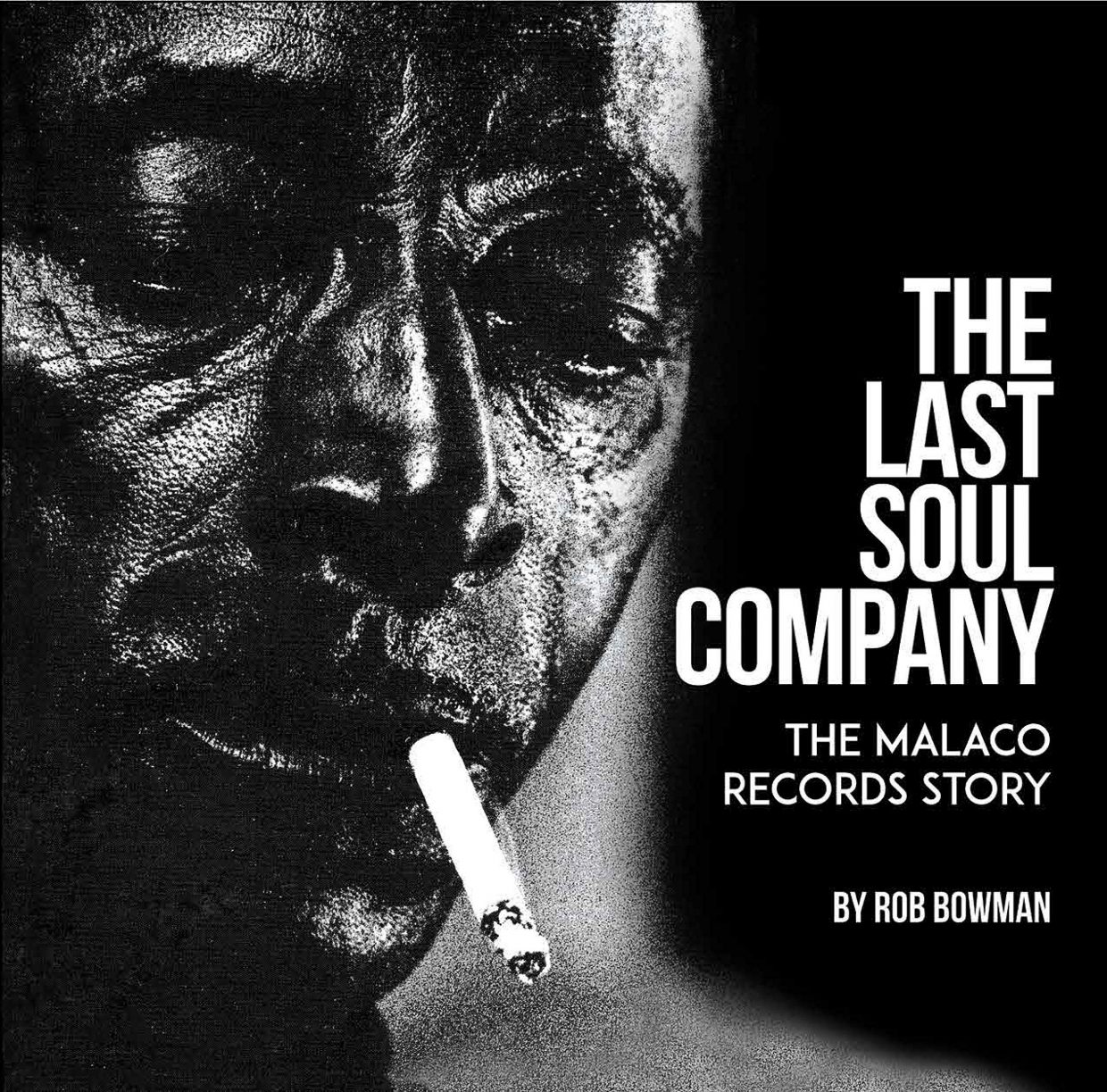
Rob Bowman, The Last Soul Company: The Malaco Records Story
Generous in its photography and its scope, this overview of Malaco Records explains how a pioneering independent label founded in 1962 brought a wealth of African American music to the world via artists like Mississippi Fred McDowell, Bobby Blue Bland, Z.Z. Hill, Johnnie Taylor, Little Milton, and James Cleveland.
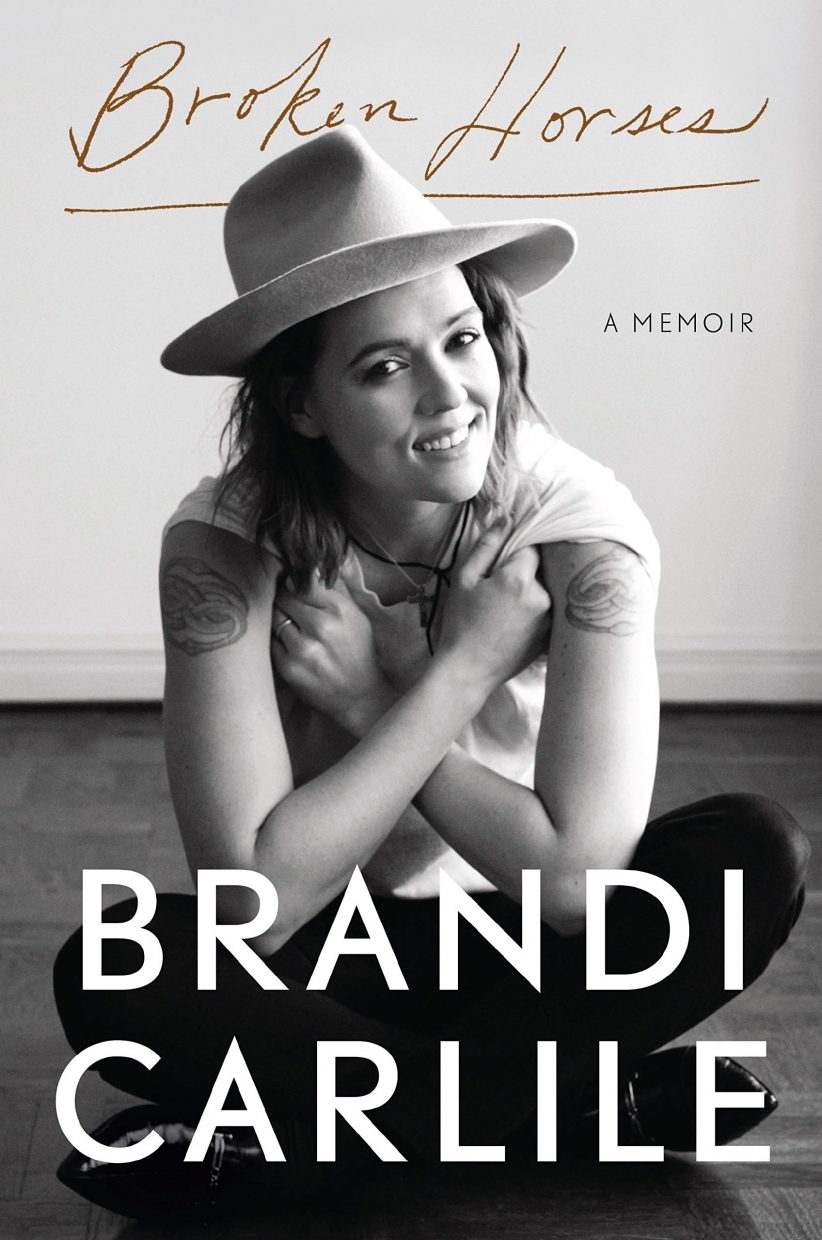
Brandi Carlile, Broken Horses
This memoir satisfies the longtime fans who will learn what inspired the songs from her early albums, yet it’s also a candid and conversational statement about what it’s like to be a queer woman in roots music today. The cast of characters is charming, too, particularly her exchanges with Elton John and Joni Mitchell.

Brent Cobb, Little Stuff
Country tunesmith Brent Cobb has said he writes every album with his kids in mind, so transforming the song “Little Stuff” into a children’s book came naturally. But how many children’s books get their own music video? Whether you read it or watch it, the Georgia musician’s homespun wisdom shines through.
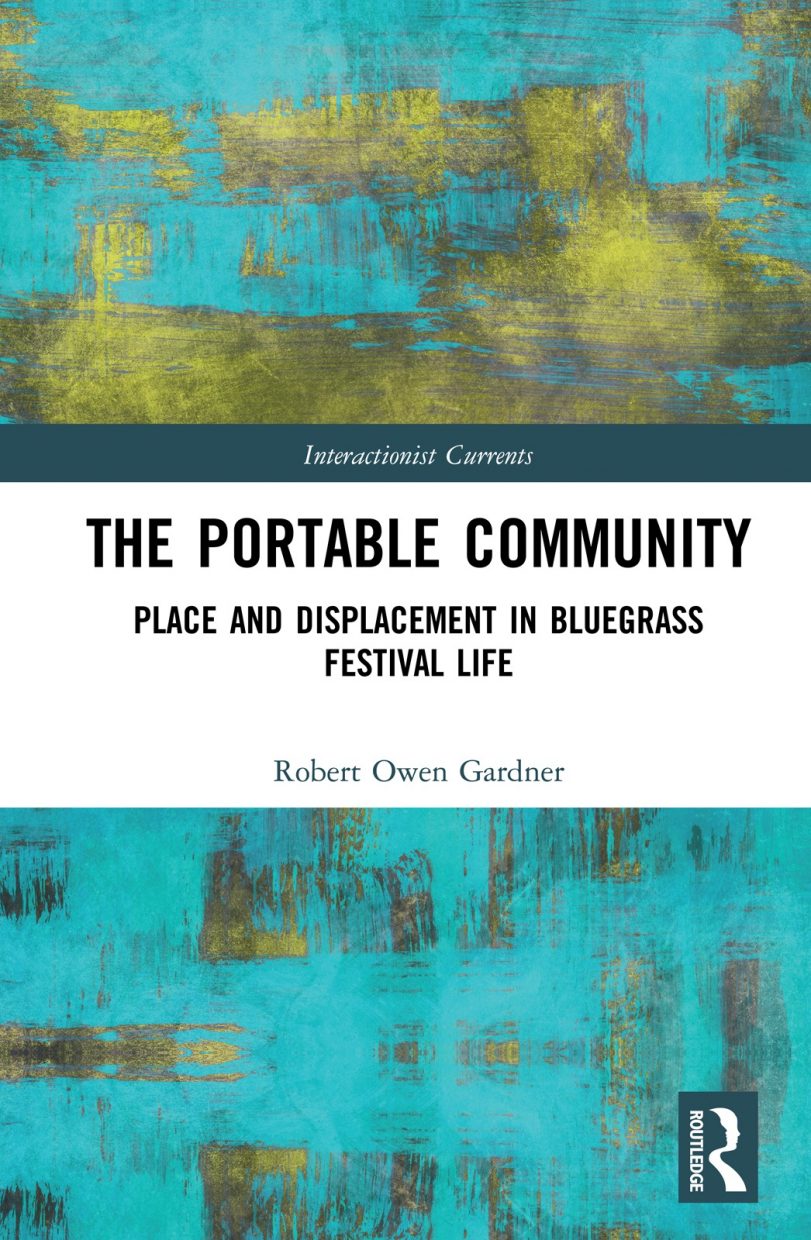
Robert Owen Gardner, The Portable Community: Place and Displacement in Bluegrass Festival Life
This scholarly look at bluegrass festival culture in the American West comes from sociology professor Robert Owen Gardner. It’s also an examination of how arts and music grapple with social and environmental change. A digital version of the academic textbook allows more room in the backpack for sunscreen and guitar strings.
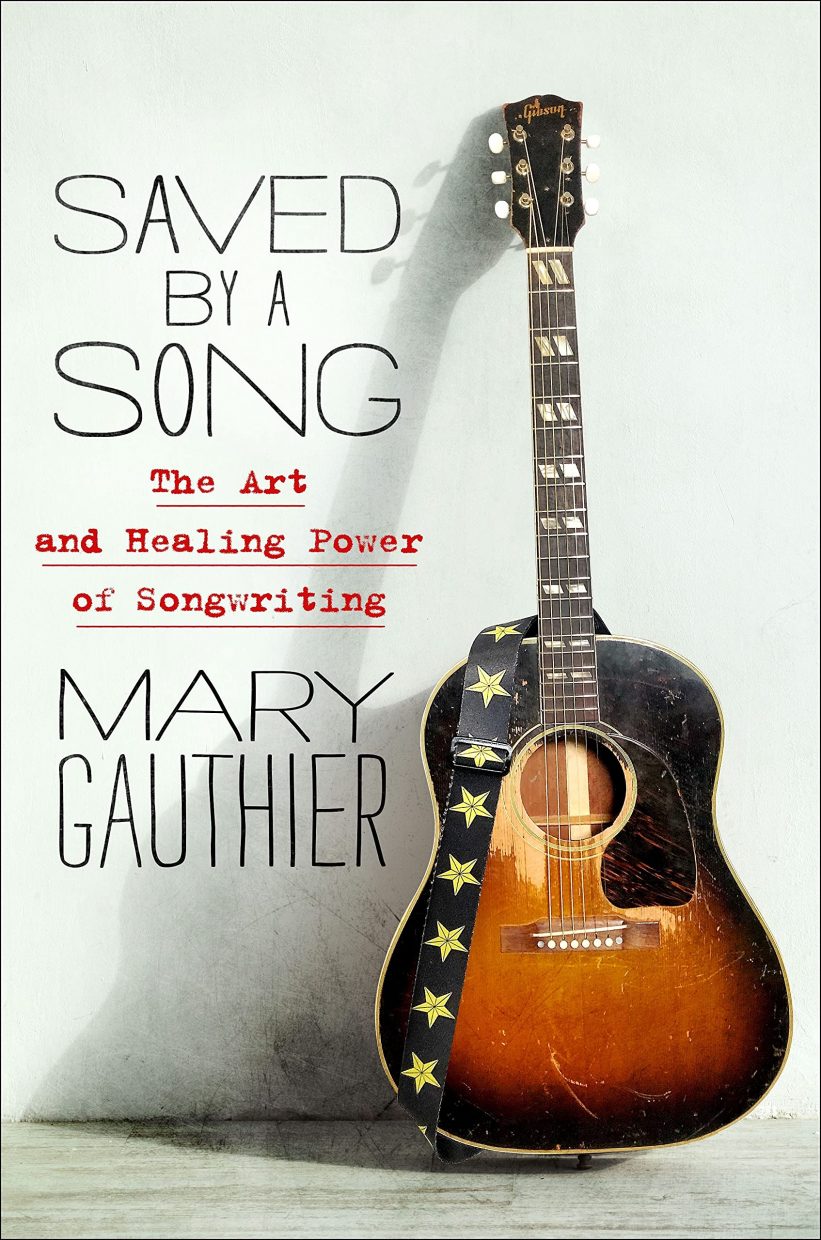
Mary Gauthier, Saved by a Song: The Art and Healing Power of Songwriting
More of a memoir than an instruction manual, Mary Gauthier tells the stories behind original songs like “Mercy Now” while leaving the mystical and magical aura of writing them intact. By sharing her intimate conversations and co-writing experiences, she offers both a creative and compassionate point of view.
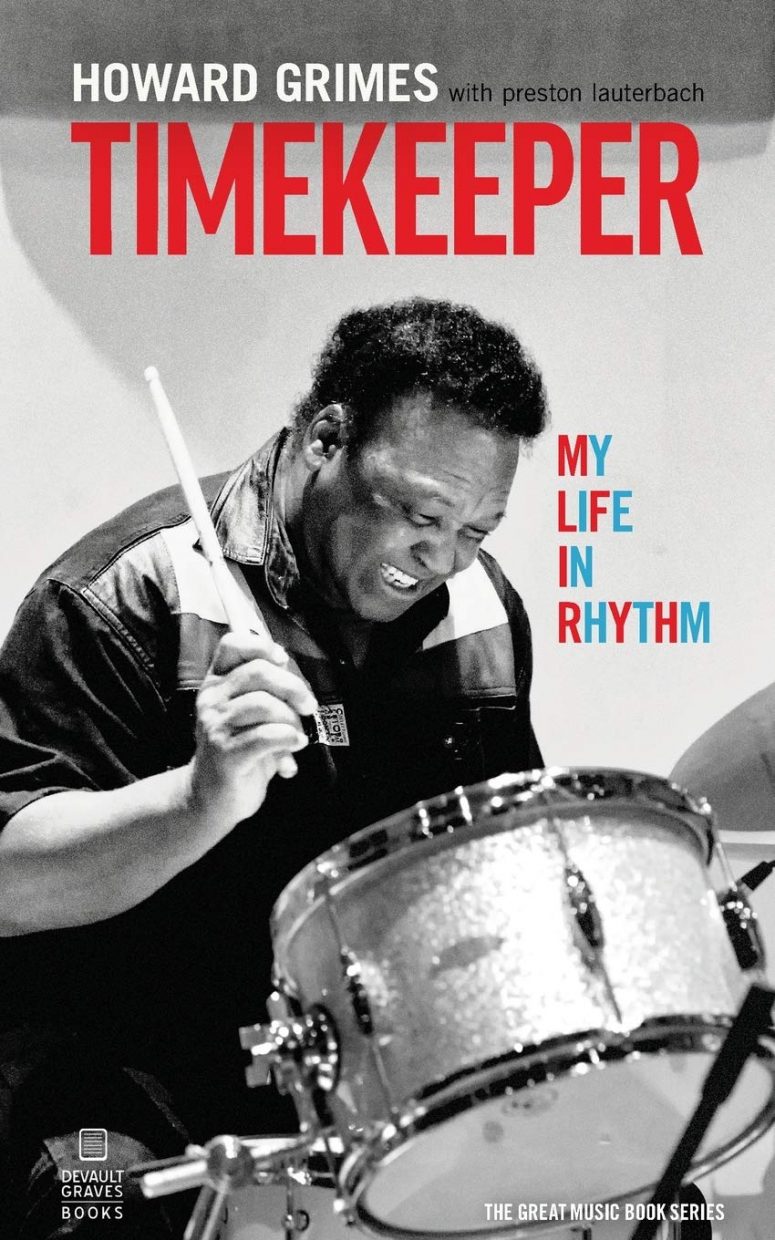
Howard Grimes with Preston Lauterbach, Timekeeper
Known as Bulldog, Memphis drummer Howard Grimes has propelled R&B classics like Al Green’s “Let’s Stay Together” and Ann Peebles’ “I Can’t Stand the Rain.” In this autobiography, he also explains how he wound up homeless for a time and how he’s been guided by the Bible. Fans of Stax and Hi Records won’t want to miss this one.
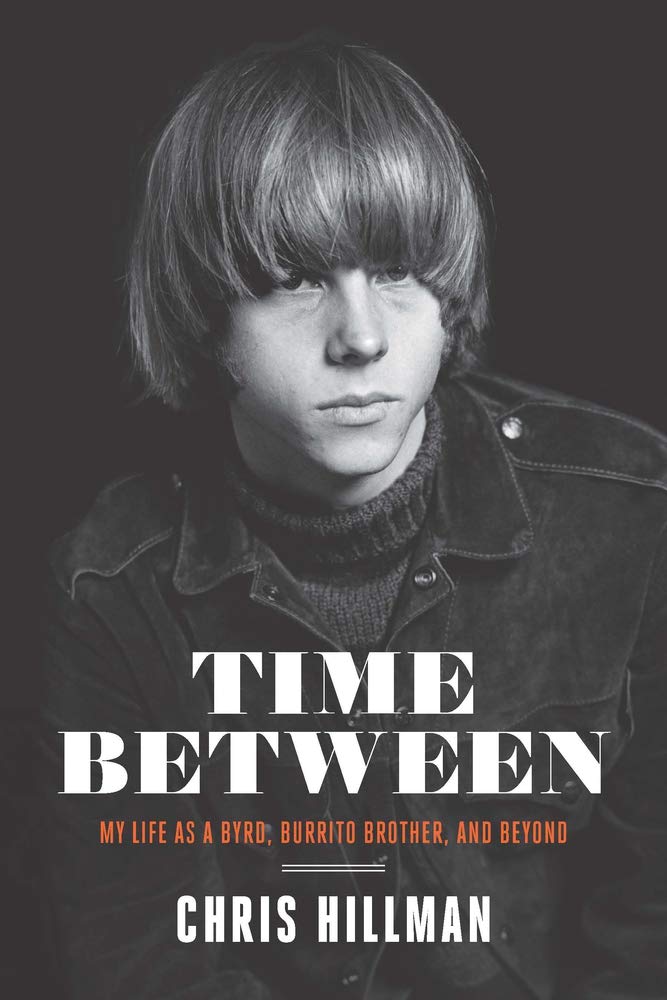
Chris Hillman, Time Between: My Life as a Byrd, Burrito Brother, and Beyond
You can’t tell the story of country rock without Chris Hillman. Time Between entered its second printing earlier this year, proving there’s still a curiosity about near-mythical bands like The Byrds and the Flying Burrito Brothers. Start at page one and turn, turn, turn to the get the whole story from this prolific Rock and Roll Hall of Famer.
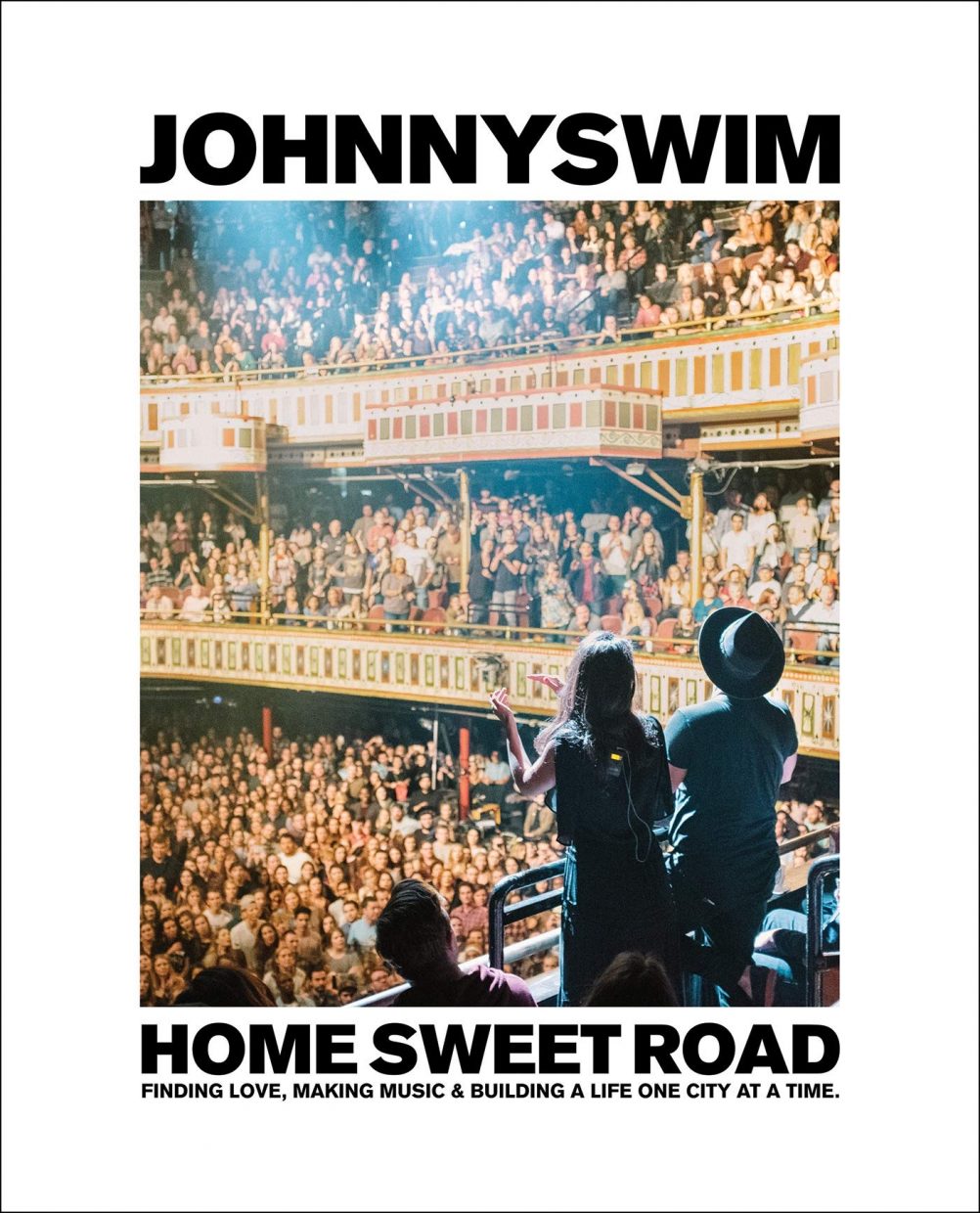
Johnnyswim, Home Sweet Road: Finding Love, Making Music & Building a Life One City at a Time.
The ever-endearing Johnnyswim found an even larger following when Chip and Joanna Gaines chose the duo’s anthem “Home” as the theme to Fixer Upper. Now, Amanda Sudano-Ramirez and Abner Ramirez give fans a deep dive into their own family life with Home Sweet Road, their debut book brimming with photos, recipes, stories, and poetry.
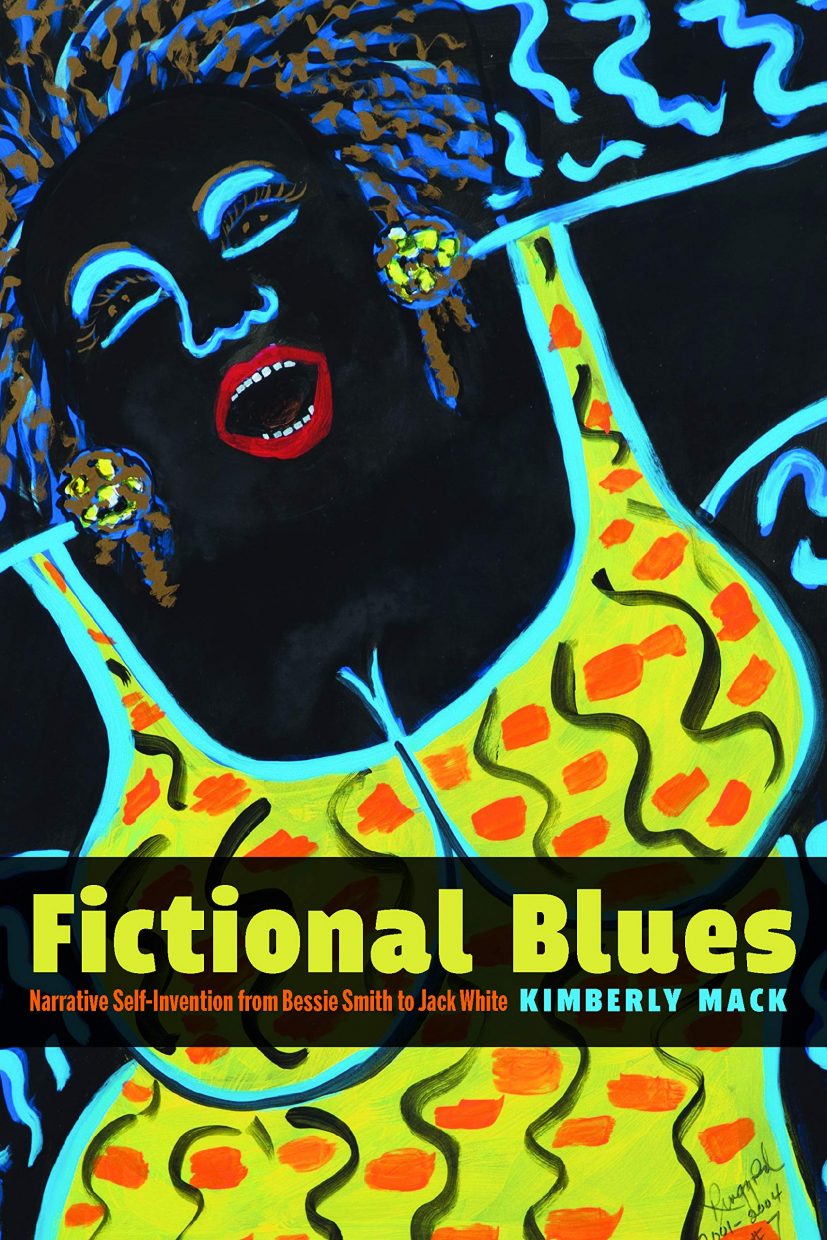
Kimberly Mack, Fictional Blues: Narrative Self-Invention from Bessie Smith to Jack White
The story of Robert Johnson selling his soul to the devil isn’t the only larger-than-life narrative in blues music. A scholar of African American literature and American popular music at The University of Toledo, Mack writes about how similar self-made personas resist racial, social, economic and gendered oppression.
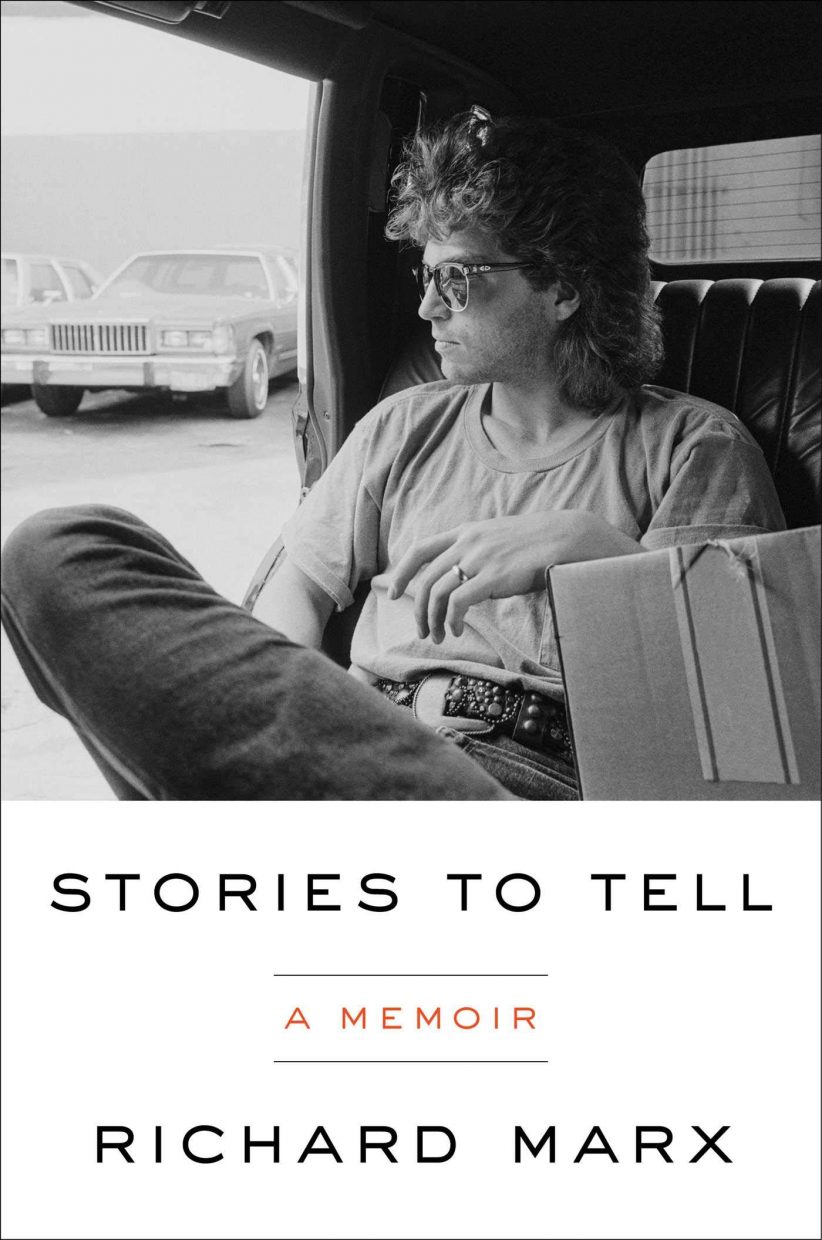
Richard Marx, Stories to Tell: A Memoir
A late ’80s pop star whose catalog still holds up, Marx writes about his life and career, including a few interactions with era-defining figures like Olivia Newton-John and Kenny Rogers. He also gives his candid perspective of what the music industry is really like. By the way, can’t you totally hear Alison Krauss covering “Right Here Waiting“?
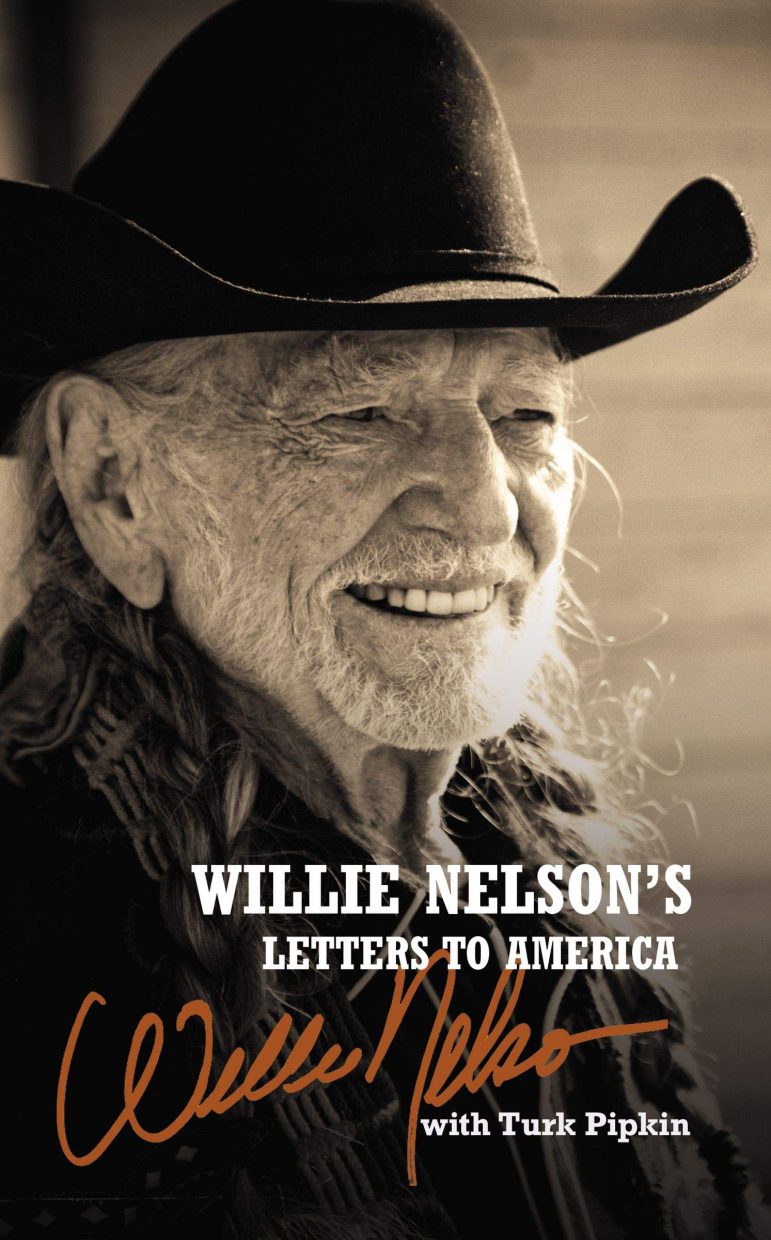
Willie Nelson with Turk Pipkin, Willie Nelson’s Letters to America
At 88 years old, Willie Nelson is a living legend with a modern point of view. Yet, rather than ranting on social media, he’s channeled his thoughts into a series of letters, even writing one to Texas and another to marijuana. With his classic lyrics reprinted alongside these letters, the book captures his conversational charisma.
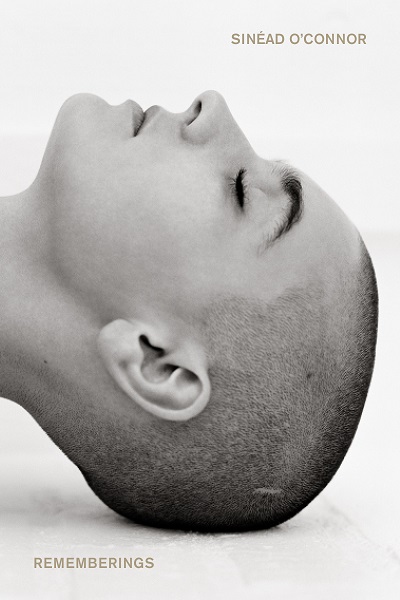
Sinéad O’Connor, Rememberings
This Irish artist made an iconic music video by tearfully emoting into the lens, but there is much more to her story than “Nothing Compares 2U” and her infamous appearance on SNL. As The Guardian notes, “O’Connor also doesn’t need a ghost writer because she has, throughout all of it, rarely been at a loss for what to say.”
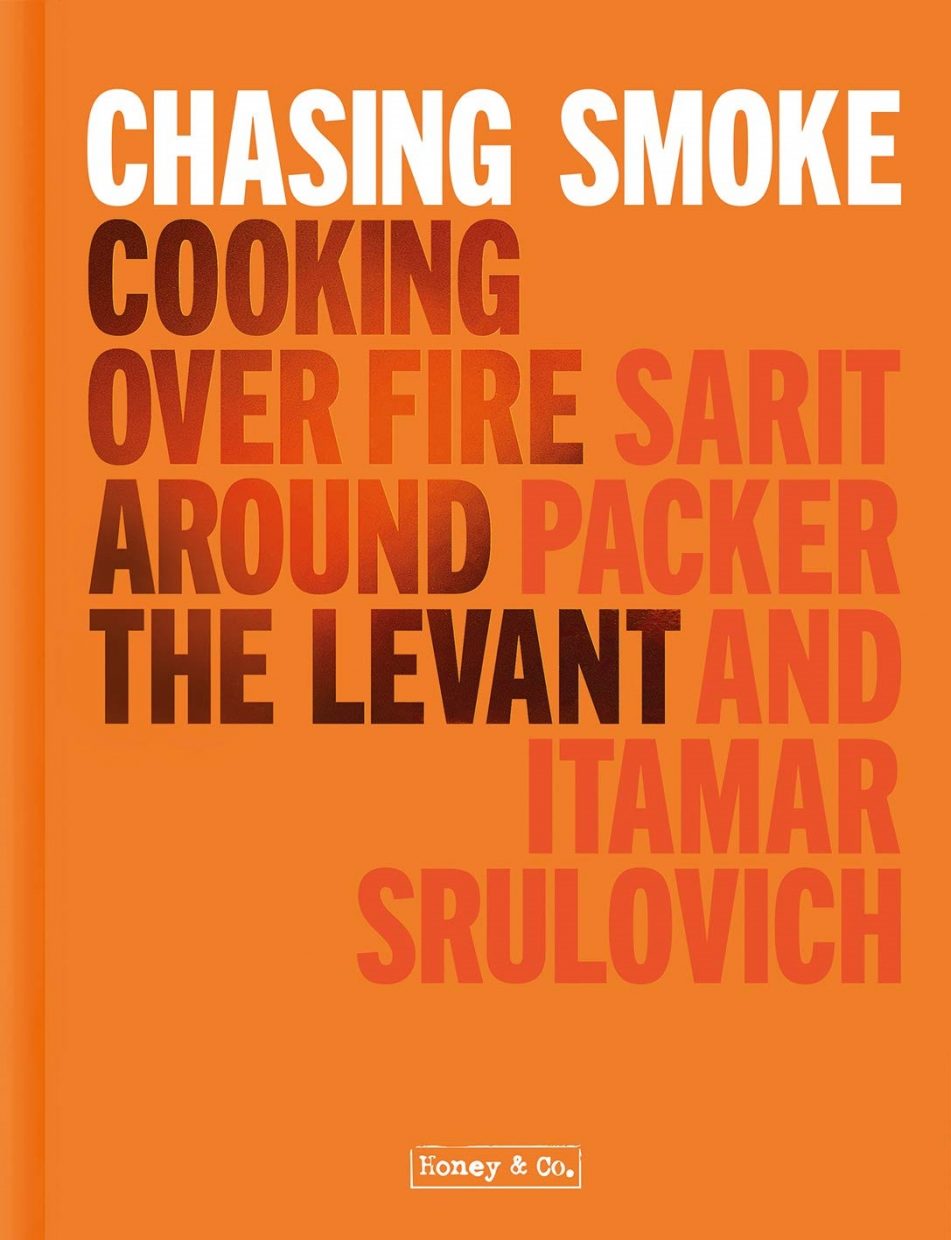
Sarit Packer and Itamar Srulovlich, Honey & Co: Chasing Smoke: Cooking Over Fire Around the Levant
In this cookbook and travelogue, the founders of London restaurant Honey & Co. are seeking out savory smoke flavors in Egypt, Jordan, Israel, Turkey, and Greece. And it’s not just grilled meat! Fruits, vegetables, breads and “Unmissables” are make their way into these pages, too. Find out more about the authors on BGS’s The Shift List.
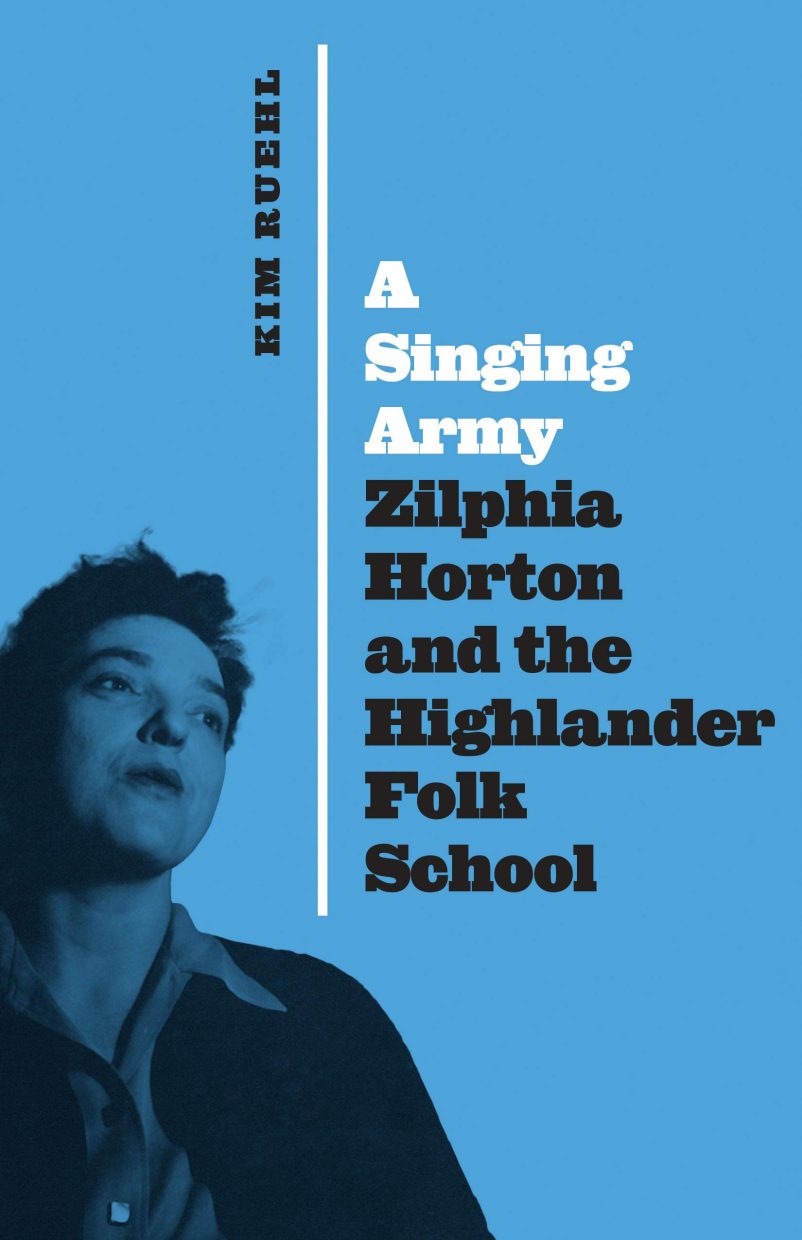
Kim Ruehl, A Singing Army: Zilphia Horton and the Highlander Folk School
An activist and song collector, Zilphia Horton finally gets her due. Ruehl (also a BGS contributor) explains how Horton adapted folk music and hymns for empowerment and social causes, with “We Shall Overcome” as just one example. Considering the school’s ties to civil rights, this piece of Tennessee history merits the attention.
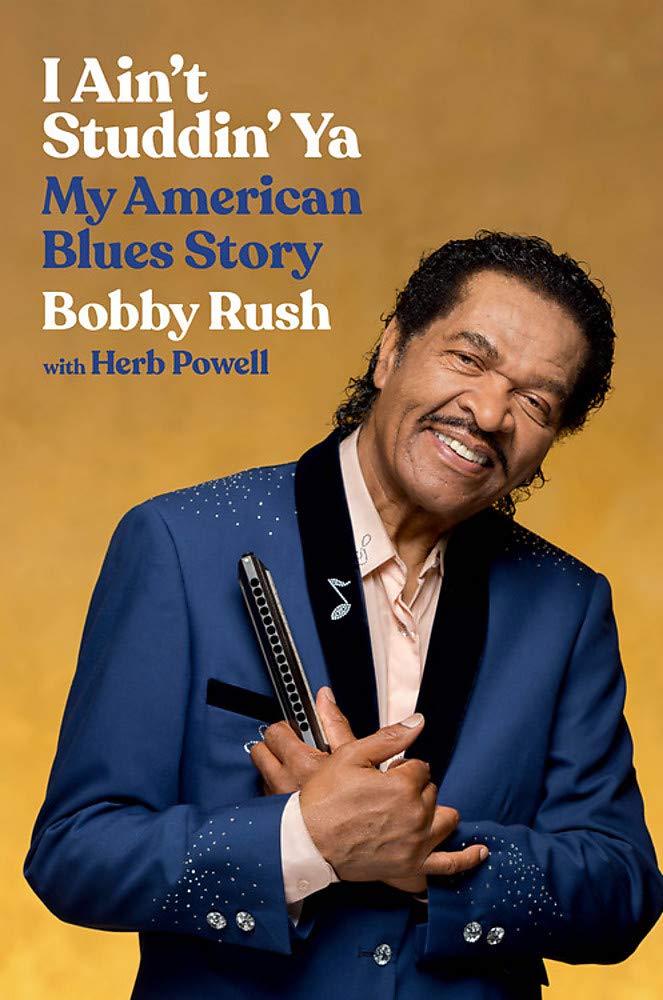
Bobby Rush with Herb Powell, I Ain’t Studdin’ Ya: My American Blues Story
A favorite on the blues scene since the 1950s, Bobby Rush remains a beloved figure in the genre, winning his second Grammy for Best Traditional Blues Album earlier this year. A well-traveled entertainer at age 87, this memoir follows his remarkable life journey from Louisiana to Arkansas, on to Chicago and ultimately the Blues Hall of Fame.
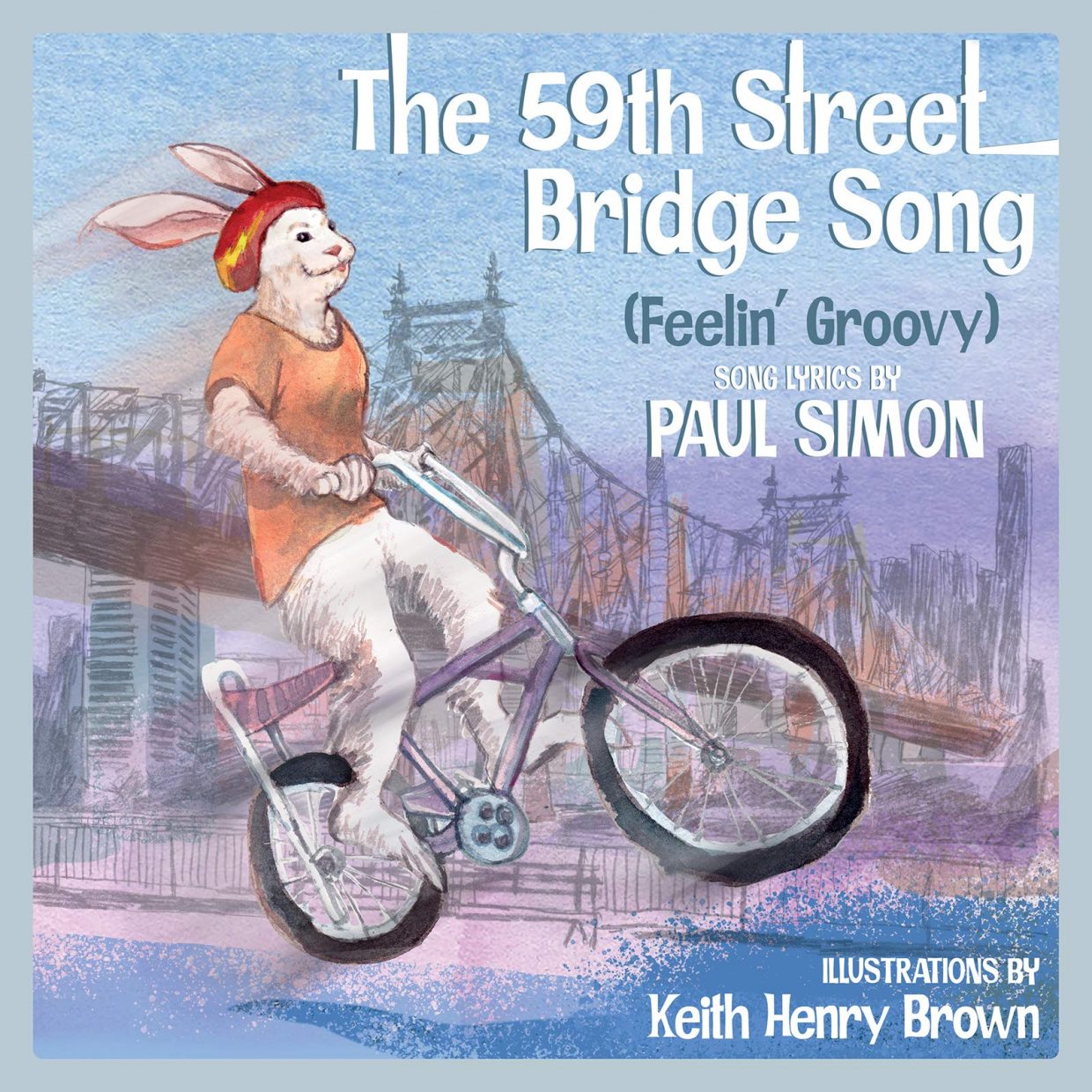
Paul Simon, The 59th Street Bridge Song (Feelin’ Groovy): A Children’s Picture Book
If you gotta make the morning last with little ones around, try this imaginative picture book. With song lyrics from the 1966 Simon & Garfunkel classic and vivid illustrations by Keith Henry Brown, the 24-page book captures the small details of city life by following a bunny on a bicycle — how groovy is that?
John Prine, Brittany Howard, Sarah Jarosz Among Winners at 63rd Annual Grammy Awards
The 63rd Annual Grammy Awards were held yesterday afternoon and evening, Sunday March 14, 2021. Here are the nominees and winners in the American Roots Music fields:
Best American Roots Performance
Black Pumas, “Colors”
Bonny Light Horseman, “Deep in Love”
Brittany Howard, “Short and Sweet”
Norah Jones & Mavis Staples, “I’ll Be Gone”
John Prine, “I Remember Everything”
Best American Roots Song
“Cabin,” Laura Rogers & Lydia Rogers, songwriters (The Secret Sisters)
“Ceiling to the Floor,” Sierra Hull & Kai Welch, songwriters (Sierra Hull)
“Hometown,” Sarah Jarosz, songwriter (Sarah Jarosz)
“I Remember Everything,” Pat McLaughlin & John Prine, songwriters (John Prine)
“Man Without a Soul,” Tom Overby & Lucinda Williams, songwriters (Lucinda Williams)
Best Americana Album
Courtney Marie Andrews, Old Flowers
Hiss Golden Messenger, Terms of Surrender
Sarah Jarosz, World on the Ground
Marcus King, El Dorado
Lucinda Williams, Good Souls Better Angels
Best Bluegrass Album
Danny Barnes, Man on Fire
Thomm Jutz, To Live in Two Worlds, Vol. 1
Steep Canyon Rangers, North Carolina Songbook
Billy Strings, Home
Various Artists, The John Hartford Fiddle Tune Project, Vol. 1
Best Traditional Blues Album
Frank Bey, All My Dues are Paid
Don Bryant, You Make Me Feel
Robert Cray Band, That’s What I Heard
Jimmy “Duck” Holmes, Cypress Grove
Bobby Rush, Rawer Than Raw
Best Contemporary Blues Album
Fantastic Negrito, Have You Lost Your Mind Yet?
Ruthie Foster Big Band, Live at the Paramount
G. Love, The Juice
Bettye LaVette, Blackbirds
North Mississippi Allstars, Up and Rolling
Best Folk Album
Bonny Light Horseman, Bonny Light Horseman
Leonard Cohen, Thanks for the Dance
Laura Marling, Song for Our Daughter
The Secret Sisters, Saturn Return
Gillian Welch & David Rawlings, All the Good Times
Best Regional Roots Music Album
Black Lodge Singers, My Relatives “Nikso Kowaiks”
Cameron Dupuy and the Cajun Troubadours, Cameron Dupuy and the Cajun Troubadours
Nā Wai ʽEhā, Lovely Sunrise
New Orleans Nightcrawlers, Atmosphere
Sweet Cecilia, A Tribute to Al Berard
Also, note these Americana winners in other categories:
Best Rock Song
“Kyoto,” Phoebe Bridgers, Morgan Nagler & Marshall Vore, songwriters (Phoebe Bridgers)
“Lost in Yesterday,” Kevin Parker, songwriter (Tame Impala)
“Not,” Adrianne Lenker, songwriter (Big Thief)
“Shameika,” Fiona Apple, songwriter (Fiona Apple)
“Stay High,” Brittany Howard, songwriter (Brittany Howard)
Best Country Solo Performance
“Black Like Me,” Mickey Guyton
“Bluebird,” Miranda Lambert
“Stick That In Your Country Song,” Eric Church
“When My Amy Prays,” Vince Gill
“Who You Thought I Was,” Brandy Clark
Best Country Song
“Bluebird,” Luke Dick, Natalie Hemby & Miranda Lambert, songwriters (Miranda Lambert)
“The Bones,” Maren Morris, Jimmy Robbins & Laura Veltz, songwriters (Maren Morris)
“Crowded Table,” Brandi Carlile, Natalie Hemby & Lori McKenna, songwriters (The Highwomen)
“More Hearts Than Mine,” Ingrid Andress, Sam Ellis & Derrick Southerland, songwriters (Ingrid Andress)
“Some People Do,” Jesse Frasure, Shane McAnally, Matthew Ramsey & Thomas Rhett, songwriters (Old Dominion)
Best Roots Gospel Album
Fisk Jubilee Singers, Celebrating Fisk! (The 150th Anniversary Album)
Mark Bishop, Beautiful Day
The Crabb Family, 20/20
The Erwins, What Christmas Really Means
Ernie Haase & Signature Sound, Something Beautiful
Photo by Kevin Winter/Getty Images for The Recording Academy
BGS Celebrates Black History Month (Part 1 of 2)
At BGS, we firmly believe that Black history is American roots music history. Full stop.
Last year, following the extrajudicial murder of George Floyd and the civil unrest, protests, and rebellions against racial injustice and systemic inequality in this country, we realized that that belief wasn’t present enough in our daily content and editorial. We knew that it needed to be overt, expressed within every aspect of what we do.
Which is why this month, we’ve invited you to celebrate Black History Month as we always do, by denoting that celebrating Black contributions in bluegrass, country, and old-time — and roots music as a whole — requires centering Black creators, artists, musicians, and perspectives in our community daily, not just in February. (Though, for the entire month we’ve been sharing music, stories, and songs featuring Black artists every day, too!)
In the past year we’ve recommitted ourselves to fully incorporating Black Voices into everything we do and we hope that our readers and listeners, our followers and fans, and our family of artists constantly celebrate, acknowledge, and pay credit to Blackness and Black folks, who we have to thank for everything we love about American roots music. To bid adieu to Black History Month 2021, we’re spotlighting Black artists who have graced our pages in the last year in a two-part roundup.
Editor’s note: Read part two of our Black History Month celebration here.
Artists of the Month
On the Cover
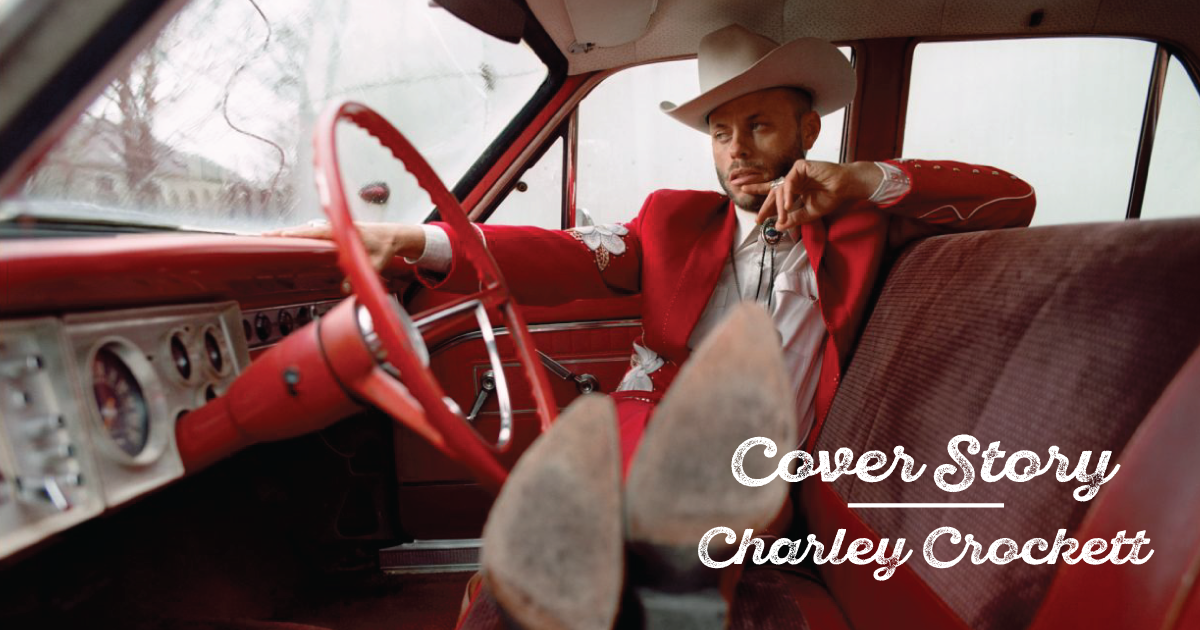
Both country & western crooner Charley Crockett and old-time banjoist, fiddler, and ethnomusicologist Jake Blount graced our digital covers in the past year, demonstrating the width, depth, and breadth of Black contributions to American roots music across the country and drawing from various regions and traditions.
In our interview and on his most recent release, Crockett doesn’t just reckon with the current historical moment. With Welcome to Hard Times, which is comprised of 13 tracks of searing anguish set to slick, ’60s-style, country-western production, he’s also examining his own place in this moment, and how his music has a different impact with different audiences. Even as he — a man living somewhere between Black and white, privileged and not — feels that his message is obvious.
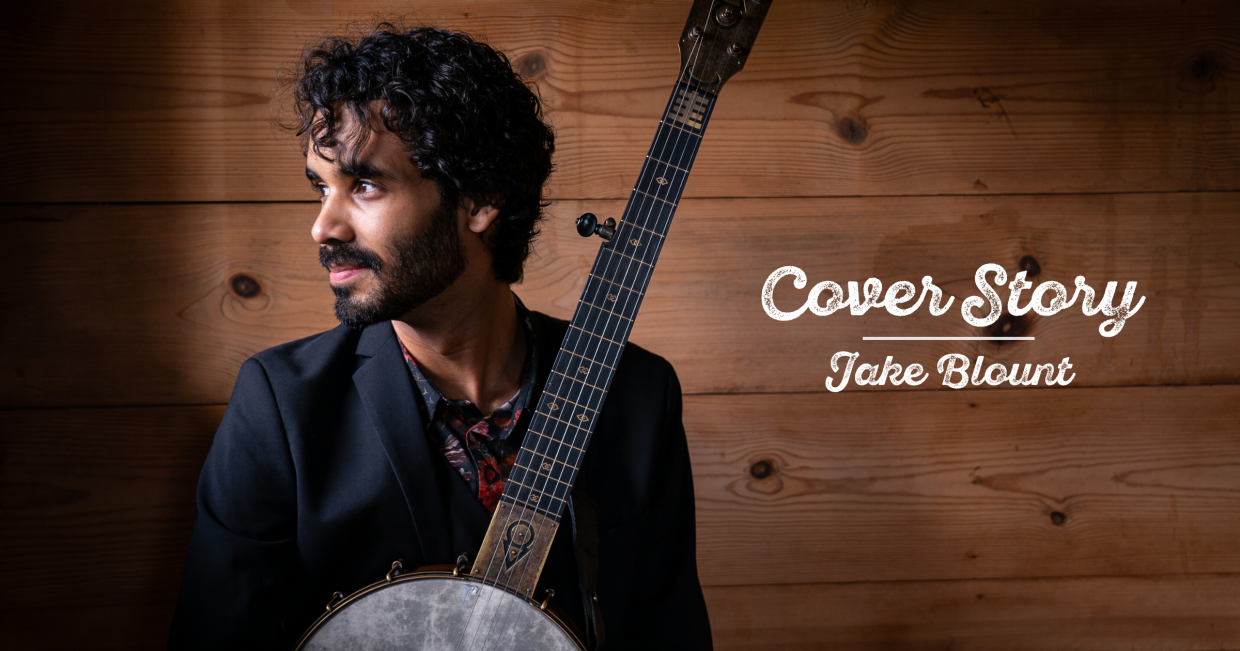
Queer old-time musician and scholar Jake Blount is intimately familiar with the history of Black artists in the twentieth century who spoke out against white supremacy and often paid for it with their lives. He sees his music — and his most recent album, Spider Tales — within that subversive, radical lineage, and rightly so. A critically acclaimed project that landed on seemingly dozens of year-end lists in 2020, Blount’s carefully curated tunes convey that racial inequality in this country is a long, self-feeding cycle and this current iteration of the civil rights movement was neither surprising nor unpredictable. In a year defined by music created in response to current events or simply passively shaped by them, Blount’s Spider Tales stands out, an example of action rather than reaction.
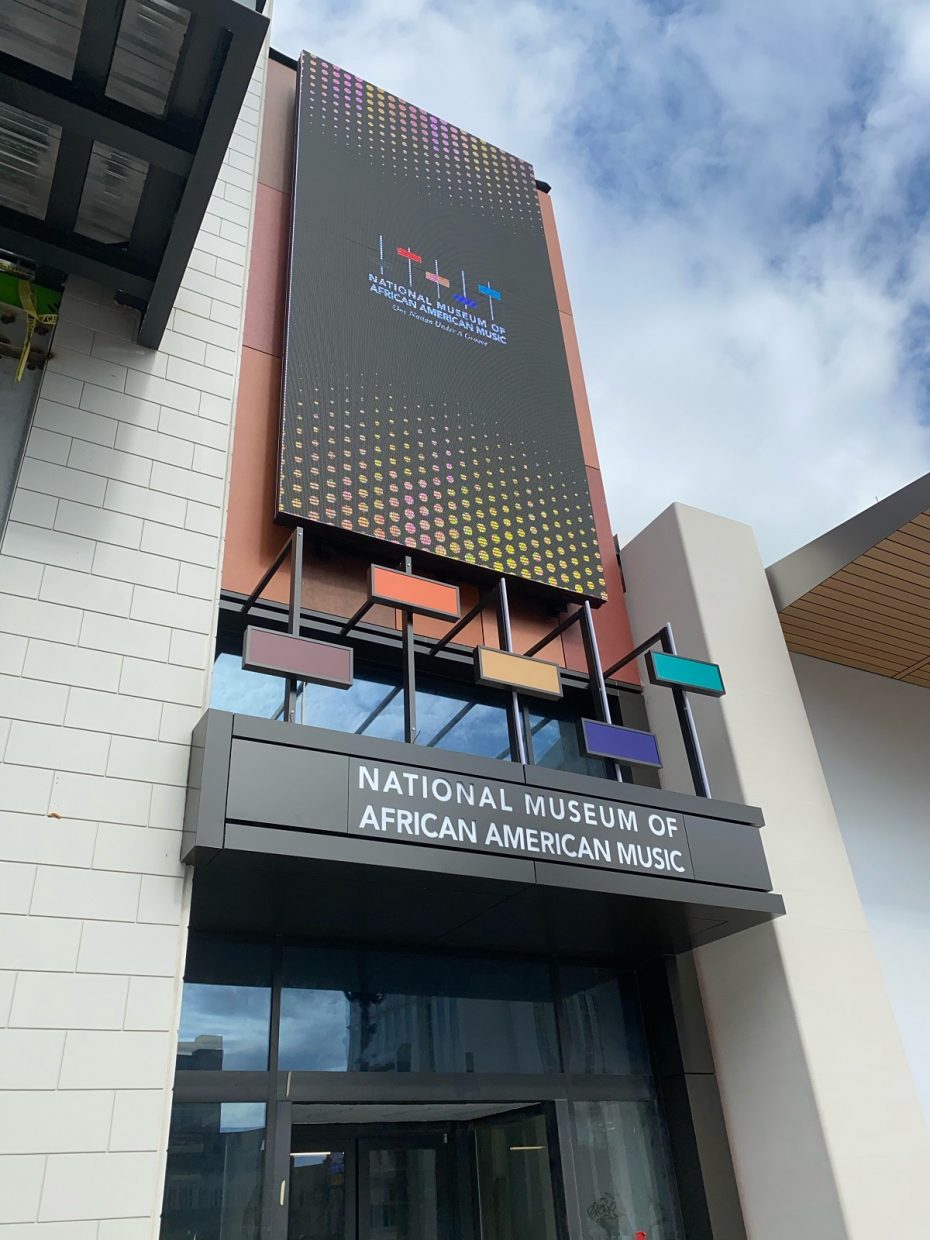
The BGS Podcast Network
Country singer and 2020 breakout star Mickey Guyton (who, for the record, has been a recording artist for more than a decade despite her recent meteoric rise) appeared on Episode 3, talking about writing “Black Like Me” — a song about her pain and struggles growing up as a Black woman in America — amidst the protests against police brutality across the nation. They also discuss country artists speaking out against racism and injustice, the power and importance of “three chords and the truth” in the midst of Music Row fluff, lifting other women up as a form of therapy, and, of course, Dolly Parton.
Two of Behrs’ closest friends, sisters Tichina & Zenay Arnold also appeared on the show. Tichina, Behr’s co-star on CBS’s The Neighborhood, and her sister are something like spiritual coaches for Beth. The three discuss the spirituality of music and the musicality of comedy, the timeliness of The Neighborhood as well as the pure spirit on the set, the absolutely necessity of open conversation in active anti-racism, balancing professional and familial relationships, and much more.
Finally, Birds of Chicago frontwoman and multi-instrumentalist Allison Russell decided to dig deep into her childhood traumas, the healing power of music and artistic community, the history of the banjo, and the intersectionality of the honest conversations in our culture on her episode of Harmonics. In addition to her career with Birds of Chicago, Russell is one quarter of the supergroup Our Native Daughters, with Rhiannon Giddens, Amythyst Kiah, and Leyla McCalla, and is preparing to release her first solo album.
Later in the season, SOTR episodes featured Leyla McCalla — a talented, multilingual cellist, banjoist, and singer-songwriter and member of Our Native Daughters — and a special podcast swap with Under The Radar featuring truly fantastic Oakland-based artist, Fantastic Negrito. And just a couple of weeks ago, the show dropped an episode honoring Black History Month, featuring an interview with Jimmy Carter and Ricky McKinnie of the legendary Blind Boys of Alabama.
View this post on Instagram
Plus, on the String, Craig Havighurst interviewed new lead singer for the Time Jumpers, Wendy Moten, and southern Gothic poet, songwriter, and Americana-blues wizard Adia Victoria.
And, not to be left out, the BGS Radio Hour always includes music, premieres, and features of Black artists every week, as we round-up the best stories from our pages to include on the airwaves. Like this week, Allison Russell’s Sade cover and Valerie June’s cosmic new single, “Call Me a Fool” — which features Stax soul legend Carla Thomas — both appear on the show. And, on Episode 194, Chris Pierce, our Whiskey Sour Happy Hour friend Ben Harper, and Charley Crockett all make the playlist as well.
Shout & Shine
To build on this intention, we retooled our monthly column version of Shout & Shine as well, turning the interview series into a regular livestream event. Sponsored by Preston Thompson Guitars, each episode includes thirty-plus minutes of exclusive performances by Lizzie No, Sunny War, Julian Taylor, and Jackie Venson with more to come. Each set of music — and each interview as well — reinforces just how vibrant and varied roots music created by Black musicians and songwriters can be and just how valuable the perspectives and lived experiences of all kinds of people are to our communities.
Editor’s note: Read part two of our Black History Month celebration here.
Photo credit (L to R): Shemekia Copeland by Mike White; Rissi Palmer courtesy of the artist; Bettye LaVette by Joseph A. Rosen; and Mickey Guyton by Chelsea Thompson.
The Show on the Road – Listen to These Black Voices
Something powerful is in the air. While we may have said that after similar unrest in the past — after Rodney King in LA, Trayvon Martin in Miami, Freddie Gray in Baltimore, and countless others — something about what is happening now feels deeper, heavier. Maybe it’s actually sinking in.
I normally try to put out a new episode of The Show on the Road podcast every other Wednesday. This week, that simply wasn’t possible. It was time to stop giving my endless opinions, to stop waxing poetic about harmony, to shut up about finding the meaning in every lyric and just be quiet, listen and learn.
I’ve been lucky to talk with truly amazing Black artists, songwriters, and performers in the two years I’ve been creating The Show on the Road. I ask you to go back into our archives and listen to these voices. — Z. Lupetin, host
Sunny War

Discover a young, deep-voiced folk/blues artist like Sunny War, who overcame a troubled past with drugs and being unhoused in Venice Beach to create a series of critically acclaimed records that have brought her to festivals and venues around the country.
LISTEN: APPLE PODCASTS • MP3
Bobby Rush
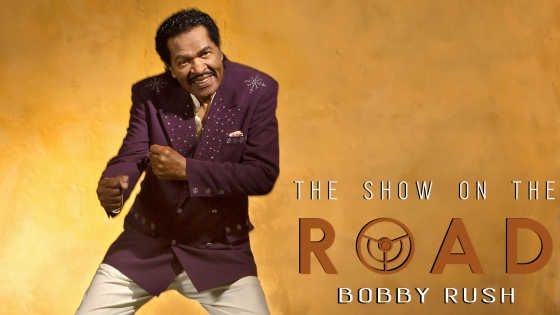
A sonic elder statesman, Bobby Rush came north from Mississippi during the great migration to work in the heyday of the Chicago blues and soul scene with Muddy Waters and Howlin’ Wolf. Rush has been making brashly funky and fearlessly sexy songs for decades, finally snagging his much-deserved first Grammy at the age of 86.
LISTEN: APPLE PODCASTS • MP3
Birds of Chicago
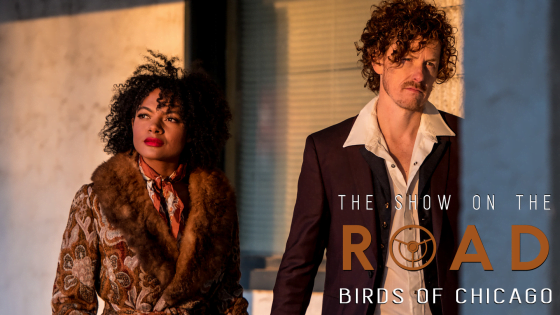
Based in Nashville by way of Chicago by way of Montreal, Birds of Chicago are centered around the powerful chemistry of husband-wife duo JT Nero and Haitian-Canadian banjoist and clarinetist dynamo Allison Russell, who gives every audience chills when she sings about her fallen ancestors. How she is not an international star astounds me. You may have seen her newest creation as part of the African American, female banjo supergroup, Our Native Daughters with Rhiannon Giddens, Amythyst Kiah, and Leyla McCalla.
LISTEN: APPLE PODCASTS • MP3
Dom Flemons
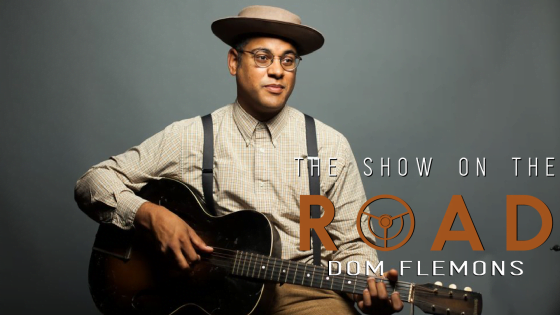
If you need to go back in time and educate yourself about Black cultural history (which you do), listen to our double episode with the great American songster Dom Flemons, who came up in the renowned Black string band Carolina Chocolate Drops. Of course, he has since struck out on his own to become a sought after, roving ethnomusicologist and music historian. His newest Grammy-nominated record brings us back into a forgotten world of Black cowboys, who don’t get the credit they deserved in helping settle the West.
LISTEN: APPLE PODCASTS • MP3
LISTEN: APPLE PODCASTS • MP3
Liz Vice

If you’ve been having a crisis of faith and need a little musical medicine, Liz Vice’s episode is the ticket. Vice grew up in Oregon singing gospel music with her family and aiming to be a filmmaker. Her career as a songwriter and performer blossomed with homemade, deeply felt, deliciously soulful and social-justice-forward records (examining her faith and our ever-evolving relationship to a higher power). We recorded in an old church in LA, and her renewed version of Woody Guthrie’s “This Land Is Your Land” is haunting.
LISTEN: APPLE PODCASTS • MP3
The War and Treaty
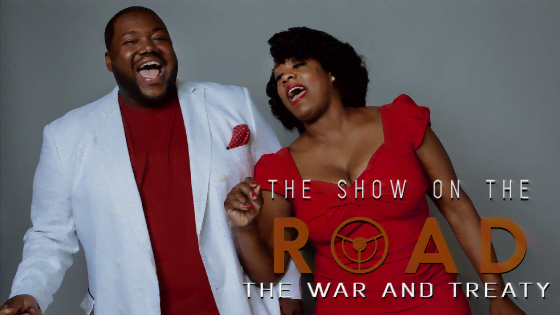
Finally, if you need a shot of pure, joyous harmony and unabashed rock ‘n’ roll spirit, our episode featuring The War and Treaty is exactly what you need. They show us how music can be a healing tide to rise all broken ships. How it can be a force for good, bringing now power-couple Tanya and Michael Trotter together against all odds after Michael came back from a trauma-filled tour of duty in Iraq and needed a way to reenter society and share the songs that had been brimming in his heart for decades. Hearing them sing together, how they complete each other totally, is all the hope I need right now.
LISTEN: APPLE PODCASTS • MP3
Celebrate Black History Month with These 15 Artists
American roots music wouldn’t exist if not for the voices, stories, and musical traditions of Black Americans. Full stop. Celebrating the Black forebears of Americana, bluegrass, country, and string band music, pointing out their importance and their essential contributions to these genres we all know and love today needs to happen year-round, not just February.
The BGS editorial team believes strongly in this idea, and though readers will be able to find several Black History Month features and articles in the coming weeks, we encourage you all to also take a dive back into our archives for stories that highlight Black creators and artists from all points across the last year.
Mavis Staples on Live From Here
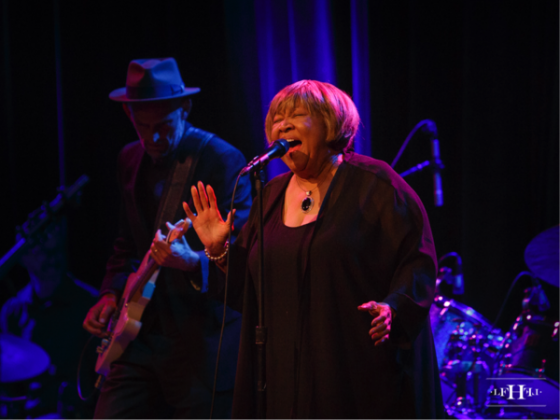
Ceaselessly relevant, Mavis Staples recently gave a keynote presentation at Folk Alliance International in New Orleans where she once again gleefully assured the audience she wouldn’t be done singing ‘til she didn’t have anything else to say. And she has plenty left to say! Watch Mavis Staples on Live From Here with Chris Thile.
Yola’s Year of Debuts
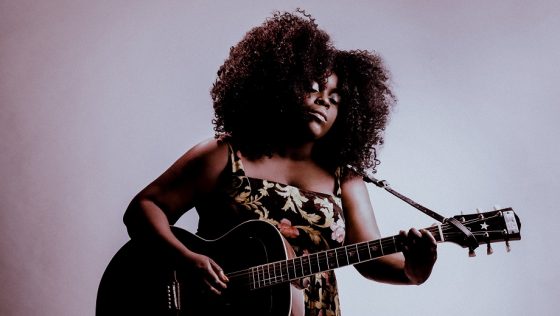
Yola’s debut album, Walk Through Fire, landed on our BGS Class of 2019 lists for Top Albums and Top Songs — and nearly every other year-end list across the industry, too. Naturally she popped up a few times in our pages: In our in-depth interview, when she made her Opry debut, and when she dropped an blazing Elton John cover.
Liz Vice on The Show On The Road

Liz Vice is a Portland born, Brooklyn-based gospel/folk firebrand who is bringing her own vision of social justice and the powerful, playful bounce of soul back to modern religious music. She is following a rich tradition that goes back generations to powerful advocates like Sister Rosetta Tharpe, Sam Cooke, the Staples Singers, the Ward Sisters, Aretha Franklin, and especially Mahalia Jackson, who was the soundtrack to the civil rights movement. Listen to the Liz Vice episode of The Show On The Road.
Brittany Howard, Artist of the Month and More

Our November 2019 Artist of the Month stunned in a stripped down duet with Alicia Keys at the Grammy Awards last weekend, her well-earned musical stardom solidified by her debut solo album, Jaime. Our Artist of the Month interview anchored our coverage of Howard’s new music, but her Tiny Desk Concert really captured readers’ attention!
Steep Canyon Rangers with Boyz II Men
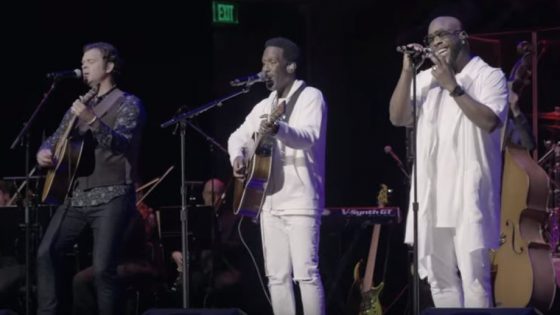
Yes, you read that correctly. A combination none of us knew we needed that now we can never go without. The Asheville Symphony backs up the two groups collaboration on “Be Still Moses,” a moment transcending different musical worlds and genre designations. You can watch that performance here.
Rhiannon Giddens: Booked, Busy, and Blessed
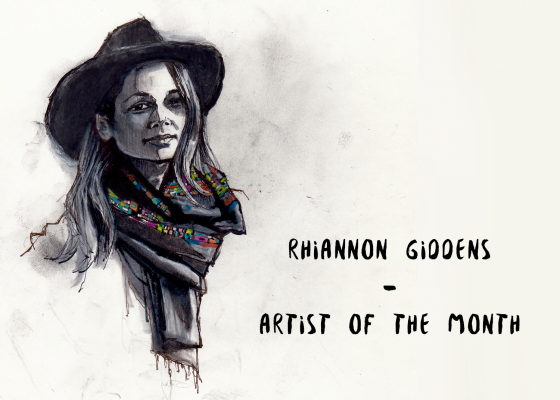
How much can an artist really accomplish in a year? A quick scroll through the BGS halls shows a Grammy-nominated album, being named Artist of the Month, scoring a ballet, playing the Tiny Desk, debuting a supergroup, and oh so much more. We are more than happy trying to keep up with Rhiannon Giddens’ prolificacy.
Ashleigh Shanti on The Shift List
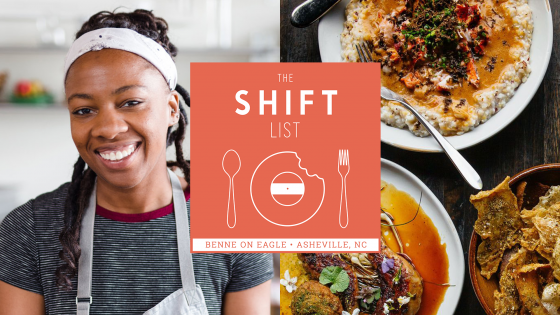
The Shift List is a podcast about chefs, their kitchens, their food, and the music that powers all of it. On an episode from September we interviewed Chef Ashleigh Shanti of Benne on Eagle, an Appalachian soul food restaurant in Asheville, North Carolina. Her Shift List includes Kendrick Lamar, Nina Simone, and more.
Grammy Winners, Ranky Tanky!
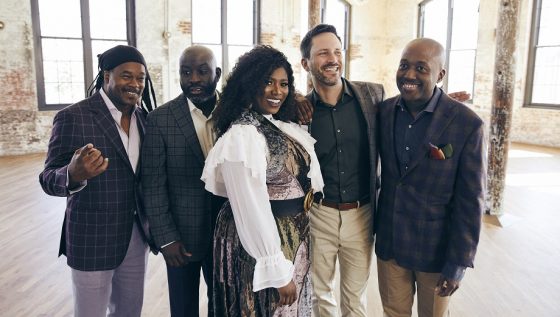
We spoke to Ranky Tanky about their album Good Time in August, less than six months before it would win the Grammy for Best Regional Roots Album. If you aren’t familiar with Gullah music, our interview will help you out.
Americana’s Sweethearts, The War and Treaty

Rapidly-rising folk/soul duo of husband and wife Michael and Tanya Trotter, The War and Treaty have had a year chocked full of smashing successes. Of course the best way to catch up with them was on the road, so Z. Lupetin set up the mics for an episode of The Show On The Road.
Tui’s Old-time Tunes

Jake Blount, one half of old-time duo Tui with fiddler Libby Weitnauer, is a scholar of Black, Indigenous, and otherwise forgotten, erased, or marginalized American fiddlers in old-time and string band music. His work specifically spotlights the source musicians whenever possible, undoing generations of revisionist history in roots music. Tui’s recording of “Cookhouse Joe” was featured in Tunesday Tuesday.
A Sitch Session with Birds of Chicago
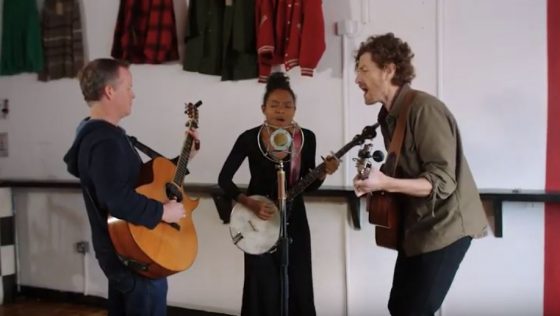
A song with a message well-timed for almost any era, “Try a Little Harder” seems especially perfect for this very moment. Birds of Chicago do an excellent job bringing that message to the world. A suitably stunning Sitch Session.
Dom Flemons Talks Black Cowboys

If you haven’t heard Dom Flemons talk about his album, Black Cowboys, and the narratives and traditions that inspired it, this episode of The Show On The Road is essential. The music is captivating on its own, a perfect demonstration of Flemons’ uncanny ability to capture timelessness and raw authenticity, but with his scholarly takes and his depth of knowledge the songs take on even more meaning and power. It’s worth a deep dive — check out our print interview, too.
Gangstagrass Set the Standard
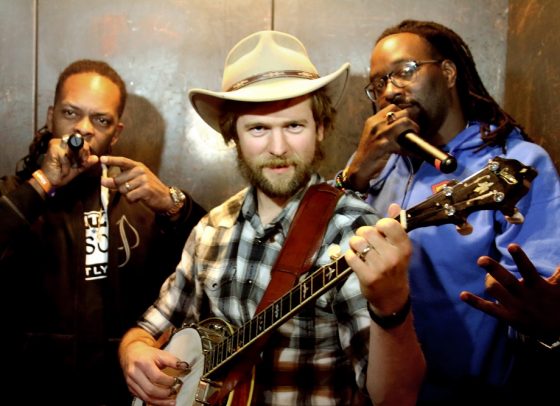
When you read Gangstagrass’s Mixtape of standard setters the parallels that emerge between foundational bluegrass and hip-hop are certainly surprising, but they also make perfect sense. It speaks to the longevity of this boundary-pushing, genre-defying group — that has been setting their own standard as they go.
Jontavious Willis Goes Back to the Country
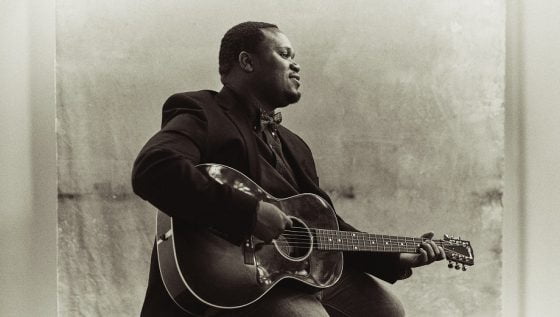
“Take Me to the Country” is Willis’ paean to his homeland: “No matter where I go in the world, I can’t wait to go back to the country,” He told BGS in April of last year. “For me, that special place is a rural southern town in Georgia where I grew up. It’s such a quiet and calm place, and somewhere I crave when I’m far from it.” You can hear that truth woven into the music.
Octogenarian Bluesman, Bobby Rush

At 85 years old, Bobby Rush has been playing his brand of lovably raunchy, acoustically crunchy, and soulfully rowdy blues for over six decades. After winning his first Grammy at the humble age of 83, he has no plans of slowing down. We caught up with Rush on The Show On The Road.
Photo of Yola: Daniel Jackson
The Show On The Road – Bobby Rush
At 85 years old, Bobby Rush has been playing his brand of lovably raunchy, acoustically crunchy, and soulfully rowdy blues for over six decades.
Listen: APPLE MUSIC • MP3
Starting from his days as part of the Southern migration from his hometown of Homer, Louisiana, to the South Side of Chicago — where he used to have Muddy Waters himself sub for him when he couldn’t do a gig — Bobby Rush, who won his first Grammy at the humble age of 83, has no plans of slowing down.
